

 BAŞVURU
BAŞVURU
This project is supported within the scope of TÜBİTAK 3501 Career Development Program. The project started on 01.08.2022 and will end on 01.08.2024.
Urban transformation has been an important agenda item in our country since the beginning of the 2000s, especially due to the old and non-earthquake-resistant building stock. However, sufficient scientific tools to be used in the application of this process have not been developed. For this reason, urban transformation processes are carried out within the framework of the decision and discretion of the implementers. In our country, in the legal regulations related to urban transformation, both the central government and the local government are given discretionary powers in many matters, from determining the urban transformation area to completing the implementation. For this reason, there is a need for scientific tools and models that will guide urban transformation and development decisions in our country. In other words, it is a very important issue that researchers and scientists produce scientific tools that can be used by decision-makers and practitioners in urban transformation processes. On the other hand, for the healthy development of the city, it is necessary to develop the right urban transformation models by conducting studies before the urban transformation and directing the transformation according to these models. The transformation of regions that maintain their economic importance without losing these characteristics is an effective factor in the economic development of the city as well as in its physical development. This study, it is aimed to develop an urban development and transformation model that can be used in decision-making processes, considering economic, social and environmental factors within the framework of the sustainability principle, for the manufacturing regions of the city, based on the example of Bağcılar, one of the important manufacturing regions of Istanbul.
While Bağcılar district has witnessed the transformation of manufacturing areas into the service sector in recent years, on the other hand, the manufacturing sector in some parts of the district still maintains its existence. The development and transformation of manufacturing regions such as Bağcılar, where production activities continue, within the framework of the principle of sustainability are important for the correct use of the city's resources. Areas, where manufacturing is intensely developed in the district, are Mahmutbey, 15 July and Bağlar neighborhoods, which are located on the Basın Ekspres Axis in the west of the district and cover an area of approximately 662 hectares. The study focuses on the transformation of manufacturing areas located in Mahmutbey, 15 July and Bağlar neighborhoods of Bağcılar District.
Asst. Prof. Gülşen Pelin OLCAY / Istanbul Kent University, Project Coordinator
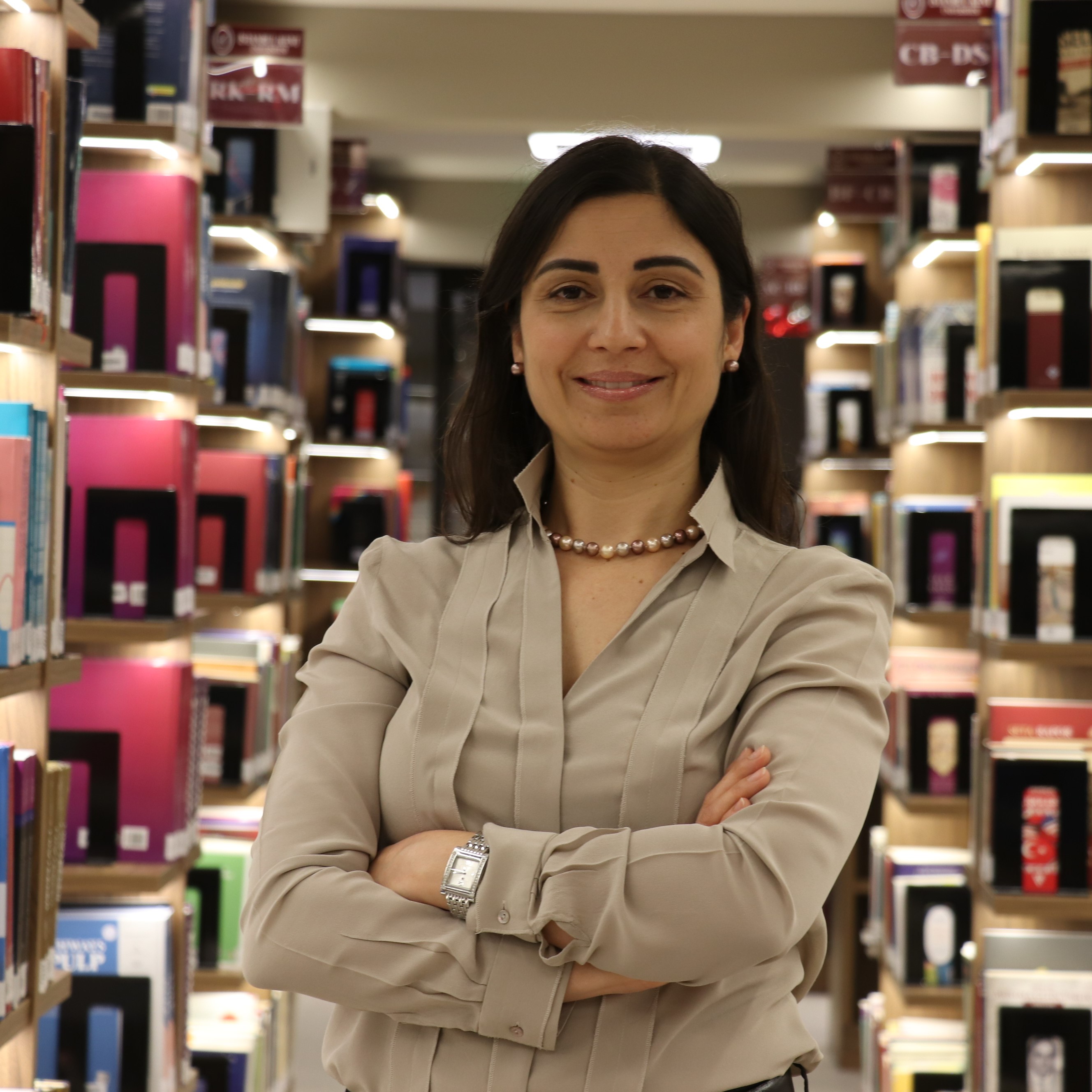 G. Pelin Olcay graduated from ITU Faculty of Architecture, Department of City and Regional Planning in 1999. She completed her master's degree in the ITU Institute of Science and Technology Regional Planning program and her doctorate in the City and Regional Planning program. Between 2004-2009, she worked as a city planner in the municipality of Çorlu, one of the industrialized regions of Turkey. In this process, she had the opportunity to research the development of industrial zones, their problems, and the socio-economic and spatial effects of these problems. In her master's thesis, she discussed the reasons for choosing the location of industrial companies in Çorlu and examined the clustering dynamics of the industry and the nature of industrial clusters. Later she worked on local development and rural development as the strategy development manager in Silivri Municipality. She took an active role in the realization of Silivri Agricultural Production and Research Center within the framework of this model by creating a local investment agency model within the municipality. During her doctoral studies in the same period, she dealt with the global development of the ready-made clothing industry and the internationalization of the supply chain. She was invited as a guest researcher to the Transnational Production Space project carried out at Berlin Technical University between 2016-2019 due to her doctoral thesis. Olcay, who has been continuing her professional life at the university since 2015, continues her studies in her academic life. The BAP project titled "Feasibility Study for the Sustainable Development and Transformation Model of the Industrial City: The Case of Bağcılar", which deals with the development and transformation of manufacturing areas in Bağcılar was supported by Arel University. The project named "The Sustainable Development and Transformation Model of Manufacturing Industrial Zones in Cities: The Case of Istanbul Bağcılar District", developed in parallel with this project and led by Olcay was entitled to be supported within the scope of the TÜBİTAK 3501 program in 2022. Since 2020, Olcay has been participating in the industrial studies of comprehensive projects carried out by central and local governments. The project for the preparation of the Turkey Spatial Strategy Plan, which was prepared in cooperation with the Ministry of Environment and Urbanization and ITU, was completed in the II. and III. acted as an expert in this phase. In December 2020, she was invited to the Istanbul Planning Agency (IPA), established by IMM, to work on the "Sectoral Solutions: Industry, Services, Tourism, and Creative Sectors" in the preparation process of Istanbul Vision 2050. She is still working as a lecturer at Istanbul Kent University, Faculty of Art and Design.
G. Pelin Olcay graduated from ITU Faculty of Architecture, Department of City and Regional Planning in 1999. She completed her master's degree in the ITU Institute of Science and Technology Regional Planning program and her doctorate in the City and Regional Planning program. Between 2004-2009, she worked as a city planner in the municipality of Çorlu, one of the industrialized regions of Turkey. In this process, she had the opportunity to research the development of industrial zones, their problems, and the socio-economic and spatial effects of these problems. In her master's thesis, she discussed the reasons for choosing the location of industrial companies in Çorlu and examined the clustering dynamics of the industry and the nature of industrial clusters. Later she worked on local development and rural development as the strategy development manager in Silivri Municipality. She took an active role in the realization of Silivri Agricultural Production and Research Center within the framework of this model by creating a local investment agency model within the municipality. During her doctoral studies in the same period, she dealt with the global development of the ready-made clothing industry and the internationalization of the supply chain. She was invited as a guest researcher to the Transnational Production Space project carried out at Berlin Technical University between 2016-2019 due to her doctoral thesis. Olcay, who has been continuing her professional life at the university since 2015, continues her studies in her academic life. The BAP project titled "Feasibility Study for the Sustainable Development and Transformation Model of the Industrial City: The Case of Bağcılar", which deals with the development and transformation of manufacturing areas in Bağcılar was supported by Arel University. The project named "The Sustainable Development and Transformation Model of Manufacturing Industrial Zones in Cities: The Case of Istanbul Bağcılar District", developed in parallel with this project and led by Olcay was entitled to be supported within the scope of the TÜBİTAK 3501 program in 2022. Since 2020, Olcay has been participating in the industrial studies of comprehensive projects carried out by central and local governments. The project for the preparation of the Turkey Spatial Strategy Plan, which was prepared in cooperation with the Ministry of Environment and Urbanization and ITU, was completed in the II. and III. acted as an expert in this phase. In December 2020, she was invited to the Istanbul Planning Agency (IPA), established by IMM, to work on the "Sectoral Solutions: Industry, Services, Tourism, and Creative Sectors" in the preparation process of Istanbul Vision 2050. She is still working as a lecturer at Istanbul Kent University, Faculty of Art and Design.
Asst. Prof. Sezen TARAKÇI / Istanbul Kent University, Researcher
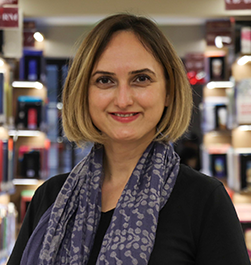 Sezen Tarakçı has a bachelor's degree from Istanbul Technical University, Department of City and Regional Planning, her master's degree from Bahçeşehir University Urban Systems and Transportation Management Program with her thesis titled "Examination of transfer centers as a public space within the scope of public interest, the example of Bağcılar Square transfer center" and a master's degree from Istanbul Technical University City and Region She received her doctorate from the Department of Urban Planning with his thesis titled “Method proposition for bringing the land value increases in urban renewal areas to the public: Fikirtepe example”. In her doctoral thesis supported by the Union of Marmara Municipalities, Tarakçı examined the gain to the public of the value increase resulting from the investments and decisions of the public in urban renewal areas and developed a model for urban renewal applications. With the aforementioned doctoral thesis, Tarakçı received the "ITU 2021 Most Successful Doctoral Thesis" award. Her fields of study focus on the legal and administrative problems of urban areas, urban transformation practices, and the acquisition of value increase. Between 2007 and 2010, she took part in zoning plans and urban transformation project studies at the Bağcılar Municipality Directorate of Development and Urbanization. She worked as a research assistant at Istanbul Arel University, Faculty of Engineering and Architecture, Department of Architecture between 2011 and 2012, and as a lecturer between 2012 and 2021, where she lectured "Zoning Law", "Urban Transformation and Urban Identity", "Settlement Planning and Design". Tarakçı has been working as a faculty member at Istanbul Kent University, Faculty of Art and Design, Department of Interior Architecture since 2021. At the same time, she is working as a researcher on the project titled "The Sustainable Development and Transformation Model of Manufacturing Industrial Zones in Cities: The Case of Istanbul Bağcılar District", which was entitled to be supported within the scope of TÜBİTAK 3501 program in 2022. At the congress held in Lisbon in 2017 by AESOP (Association of European Schools of Planning), Prof. Dr. Tarakçı, who won the AESOP Best Congress Paper Award 2017 with her statement titled "Flexibility in Urban Renewal Practices: The Case of Turkey", which she prepared with Şevkiye Şence Türk, has many international and national publications.
Sezen Tarakçı has a bachelor's degree from Istanbul Technical University, Department of City and Regional Planning, her master's degree from Bahçeşehir University Urban Systems and Transportation Management Program with her thesis titled "Examination of transfer centers as a public space within the scope of public interest, the example of Bağcılar Square transfer center" and a master's degree from Istanbul Technical University City and Region She received her doctorate from the Department of Urban Planning with his thesis titled “Method proposition for bringing the land value increases in urban renewal areas to the public: Fikirtepe example”. In her doctoral thesis supported by the Union of Marmara Municipalities, Tarakçı examined the gain to the public of the value increase resulting from the investments and decisions of the public in urban renewal areas and developed a model for urban renewal applications. With the aforementioned doctoral thesis, Tarakçı received the "ITU 2021 Most Successful Doctoral Thesis" award. Her fields of study focus on the legal and administrative problems of urban areas, urban transformation practices, and the acquisition of value increase. Between 2007 and 2010, she took part in zoning plans and urban transformation project studies at the Bağcılar Municipality Directorate of Development and Urbanization. She worked as a research assistant at Istanbul Arel University, Faculty of Engineering and Architecture, Department of Architecture between 2011 and 2012, and as a lecturer between 2012 and 2021, where she lectured "Zoning Law", "Urban Transformation and Urban Identity", "Settlement Planning and Design". Tarakçı has been working as a faculty member at Istanbul Kent University, Faculty of Art and Design, Department of Interior Architecture since 2021. At the same time, she is working as a researcher on the project titled "The Sustainable Development and Transformation Model of Manufacturing Industrial Zones in Cities: The Case of Istanbul Bağcılar District", which was entitled to be supported within the scope of TÜBİTAK 3501 program in 2022. At the congress held in Lisbon in 2017 by AESOP (Association of European Schools of Planning), Prof. Dr. Tarakçı, who won the AESOP Best Congress Paper Award 2017 with her statement titled "Flexibility in Urban Renewal Practices: The Case of Turkey", which she prepared with Şevkiye Şence Türk, has many international and national publications.
Prof. Dr. Melih BAŞ / Istanbul Arel University, Consultant
 Melih Baş received his bachelor's degree from Ankara İ.T.İ.A. Faculty of Business Administration, and his master's and doctorate degrees from Ankara University SBE Business Administration Department. He became an associate professor of finance and accounting in the department of business, and then a professor of finance. He completed his doctorate on efficiency in enterprises. He worked at the National Productivity Center between 1986-1993. During his membership in the Quality Association (KalDer) Environment Commission and İSMMMO Environmental Commission, he started environmental economics and sustainability studies and published books, papers, articles, etc. on this subject. Various publications are available. While working at MPM, he took part in many sectoral study projects. METU, Kadir Has, Yeditepe etc. Baş, who has taught at universities, still works as a faculty member in the Department of Business Administration at Istanbul Arel University. In addition, he continues to provide training and consultancy to some businesses and business world organizations.
Melih Baş received his bachelor's degree from Ankara İ.T.İ.A. Faculty of Business Administration, and his master's and doctorate degrees from Ankara University SBE Business Administration Department. He became an associate professor of finance and accounting in the department of business, and then a professor of finance. He completed his doctorate on efficiency in enterprises. He worked at the National Productivity Center between 1986-1993. During his membership in the Quality Association (KalDer) Environment Commission and İSMMMO Environmental Commission, he started environmental economics and sustainability studies and published books, papers, articles, etc. on this subject. Various publications are available. While working at MPM, he took part in many sectoral study projects. METU, Kadir Has, Yeditepe etc. Baş, who has taught at universities, still works as a faculty member in the Department of Business Administration at Istanbul Arel University. In addition, he continues to provide training and consultancy to some businesses and business world organizations.
Prof. Dr. Nurdan ÇOLAKOĞLU / Istanbul Arel University, Consultant
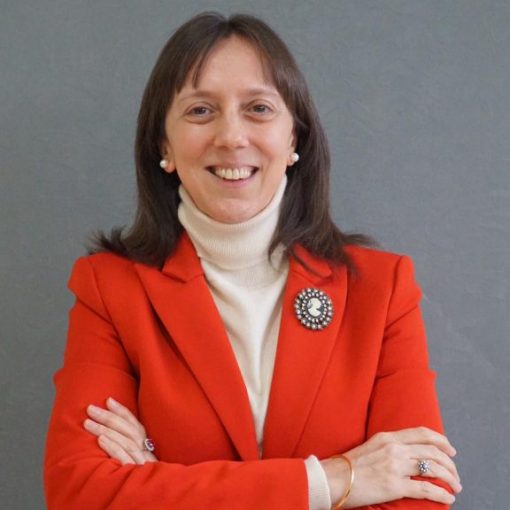 Prof. Dr. Nurdan Çolakoğlu graduated from Mimar Sinan Güzel Sanatlar University, Faculty of Arts and Sciences, Department of Mathematics in 1991. After completing his master's degree by preparing her thesis titled "Structural Analysis of Foreign Trade in Turkey (1980-1991)" in the Department of Quantitative Methods of the Institute of Social Sciences of Istanbul University in 1993, she completed her doctorate in the same department and presented the thesis "Examination of Financial Indicators with Factor Analysis" in 2000. Between 2006 and 2011, she worked as an Assistant Professor at Beykent University and held administrative duties as the Head of the Program during his tenure. Çolakoğlu, who started to work at Istanbul Arel University in 2001, served as Deputy Dean of the Faculty of Economics and Administrative Sciences, Deputy Director of the Institute of Social Sciences, Head of the Department of Business Administration, and Department of Business Administration. Çolakoğlu, is an expert in Decision-Making Techniques, Numerical Methods, and Statistics, at the undergraduate and graduate levels; She teaches courses such as Statistics, Operations Research, Decision Making Techniques, Research Methods, Advanced Research Methods, and Data Science. She contributes as a referee and Statistics Editor in many journals in the field of Medicine, Psychiatry, Science, and Social Sciences. Working on Structural Equation Models and Multi-Criteria Decision Making Techniques, Çolakoğlu is still working as the Head of the Industrial Engineering Department at the Faculty of Engineering and Architecture.
Prof. Dr. Nurdan Çolakoğlu graduated from Mimar Sinan Güzel Sanatlar University, Faculty of Arts and Sciences, Department of Mathematics in 1991. After completing his master's degree by preparing her thesis titled "Structural Analysis of Foreign Trade in Turkey (1980-1991)" in the Department of Quantitative Methods of the Institute of Social Sciences of Istanbul University in 1993, she completed her doctorate in the same department and presented the thesis "Examination of Financial Indicators with Factor Analysis" in 2000. Between 2006 and 2011, she worked as an Assistant Professor at Beykent University and held administrative duties as the Head of the Program during his tenure. Çolakoğlu, who started to work at Istanbul Arel University in 2001, served as Deputy Dean of the Faculty of Economics and Administrative Sciences, Deputy Director of the Institute of Social Sciences, Head of the Department of Business Administration, and Department of Business Administration. Çolakoğlu, is an expert in Decision-Making Techniques, Numerical Methods, and Statistics, at the undergraduate and graduate levels; She teaches courses such as Statistics, Operations Research, Decision Making Techniques, Research Methods, Advanced Research Methods, and Data Science. She contributes as a referee and Statistics Editor in many journals in the field of Medicine, Psychiatry, Science, and Social Sciences. Working on Structural Equation Models and Multi-Criteria Decision Making Techniques, Çolakoğlu is still working as the Head of the Industrial Engineering Department at the Faculty of Engineering and Architecture.
Assoc. Prof. Kerem Yavuz ARSLANLI / Istanbul Technical University, Consultant
 Dr. Kerem Yavuz Arslanlı is currently working at Istanbul Technical University, Institute of Social Sciences. He worked at ITU Environment and Urbanization UYG-AR Center between 2002-2012. In 2009, he won the Doctoral Session Grant from the American Real Estate and Urban Economics Association AREUEA with his doctoral study titled “Spatial Autoregressive Housing Price Index Model”. In 2010, on the housing price index at the Institute of International Economics University of Alicante/Spain; In 2011, he conducted research on real estate investment trusts in the Finance Department of London Cass Business School. He has many publications in national and international journals and papers at conferences. He has been the 2016-17 President of the European Real Estate Society, which consists of academics and doctoral students on real estate research and education, and has been a member of the board of directors since 2013. In the study “Analysis of Istanbul House Prices: Spatial Dependency”, the analysis of house prices was modeled using spatial matrices. Istanbul's polycentric development; population density, distance from the city center, income level, and educational status variables were examined on the basis of districts and neighborhoods. Spatial dependence was identified as the most important explanatory factor in sub-centers. In addition, proximity to transportation alternatives has revealed variable results in different socio-economic areas.
Dr. Kerem Yavuz Arslanlı is currently working at Istanbul Technical University, Institute of Social Sciences. He worked at ITU Environment and Urbanization UYG-AR Center between 2002-2012. In 2009, he won the Doctoral Session Grant from the American Real Estate and Urban Economics Association AREUEA with his doctoral study titled “Spatial Autoregressive Housing Price Index Model”. In 2010, on the housing price index at the Institute of International Economics University of Alicante/Spain; In 2011, he conducted research on real estate investment trusts in the Finance Department of London Cass Business School. He has many publications in national and international journals and papers at conferences. He has been the 2016-17 President of the European Real Estate Society, which consists of academics and doctoral students on real estate research and education, and has been a member of the board of directors since 2013. In the study “Analysis of Istanbul House Prices: Spatial Dependency”, the analysis of house prices was modeled using spatial matrices. Istanbul's polycentric development; population density, distance from the city center, income level, and educational status variables were examined on the basis of districts and neighborhoods. Spatial dependence was identified as the most important explanatory factor in sub-centers. In addition, proximity to transportation alternatives has revealed variable results in different socio-economic areas.
Senior Urban Planner Didem Bıçkıcı / NETCAD A.Ş., PhD Scholar
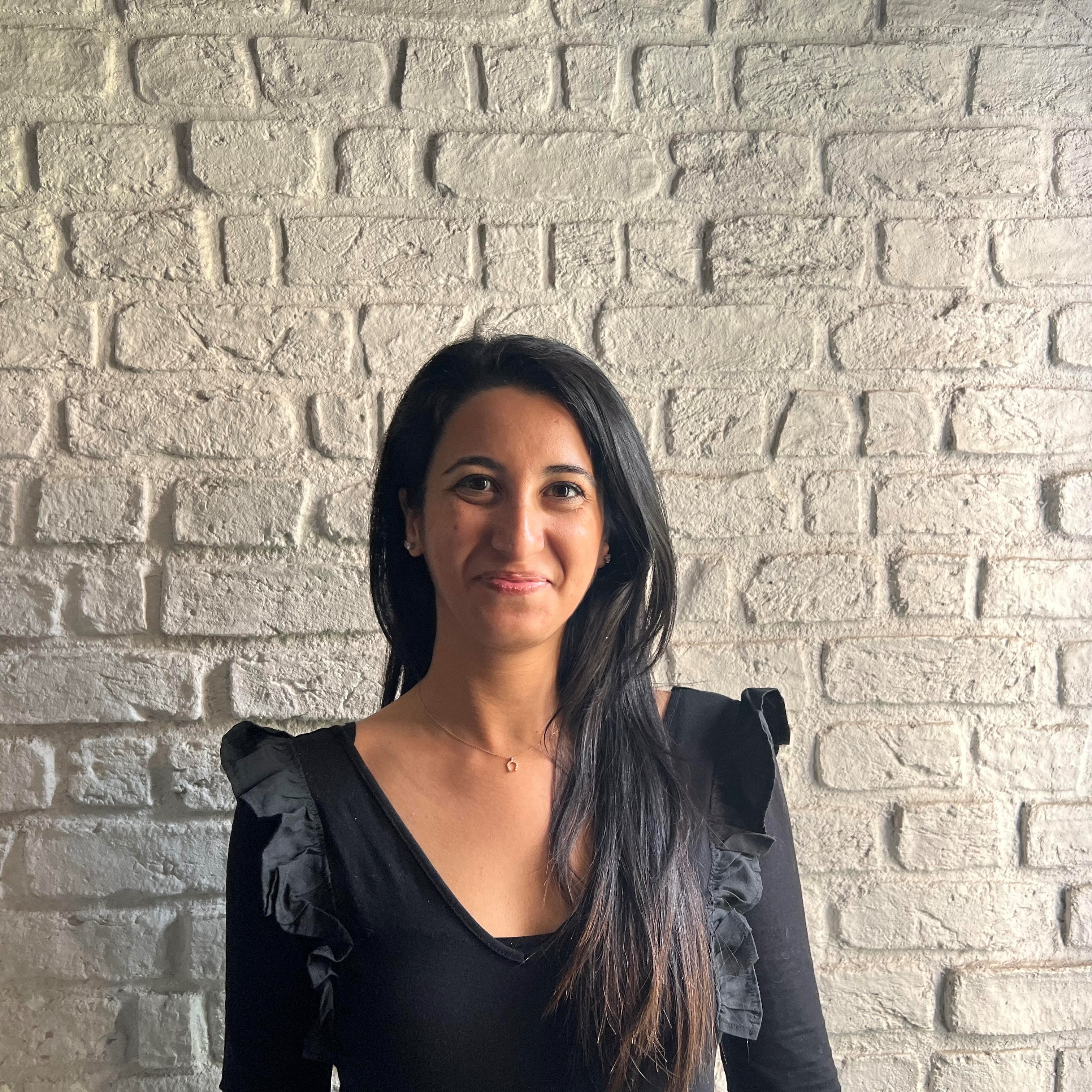 Didem Bıçkıcı graduated from Yıldız Technical University, Department of Urban and Regional Planning in 2015. During his undergraduate education, he had the opportunity to receive education in the field of urbanism at Universidade Tecnica de Lisboa with the student exchange program. She completed her master's degree at Yıldız Technical University, Institute of Science, Urban Transformation and Planning program. She is continuing her doctorate studies in Mimar Sinan Güzel Sanatlar University Urban Planning program. Between 2016-2020, she worked in the field of Geographic Information Systems at Netcad Yazılım A.Ş. She had the opportunity to take part in different units in the process from the production of geographical data to the creation and follow-up of smart city application processes, to meeting the technical demands of public institutions. Maltepe Municipality took part in the follow-up of the project on the follow-up and sustainability of smart city planning applications. In the project, where earthquake risk buildings will be examined at Bimtaş A.Ş between 2020-2021, by developing applications based on geographic information systems; She took an active role in the development of application tools such as the management and monitoring of field data collection processes, systematic data collection, and the creation of summary panels. At the same time, she conducted a study titled “Large-Scale Organizations as a Tool for Urban Restructuring: An Evaluation of Istanbul” in her master's thesis. In the period following 2021, she continues to work in the field of geographic information systems and smart urbanism as a Technology Products Specialist at Netcad Yazilim A. is a part-time lecturer.
Didem Bıçkıcı graduated from Yıldız Technical University, Department of Urban and Regional Planning in 2015. During his undergraduate education, he had the opportunity to receive education in the field of urbanism at Universidade Tecnica de Lisboa with the student exchange program. She completed her master's degree at Yıldız Technical University, Institute of Science, Urban Transformation and Planning program. She is continuing her doctorate studies in Mimar Sinan Güzel Sanatlar University Urban Planning program. Between 2016-2020, she worked in the field of Geographic Information Systems at Netcad Yazılım A.Ş. She had the opportunity to take part in different units in the process from the production of geographical data to the creation and follow-up of smart city application processes, to meeting the technical demands of public institutions. Maltepe Municipality took part in the follow-up of the project on the follow-up and sustainability of smart city planning applications. In the project, where earthquake risk buildings will be examined at Bimtaş A.Ş between 2020-2021, by developing applications based on geographic information systems; She took an active role in the development of application tools such as the management and monitoring of field data collection processes, systematic data collection, and the creation of summary panels. At the same time, she conducted a study titled “Large-Scale Organizations as a Tool for Urban Restructuring: An Evaluation of Istanbul” in her master's thesis. In the period following 2021, she continues to work in the field of geographic information systems and smart urbanism as a Technology Products Specialist at Netcad Yazilim A. is a part-time lecturer.
Senior Urban Planner Nur Kardelen Öztürk / Gebze Technical University, PhD Scholar
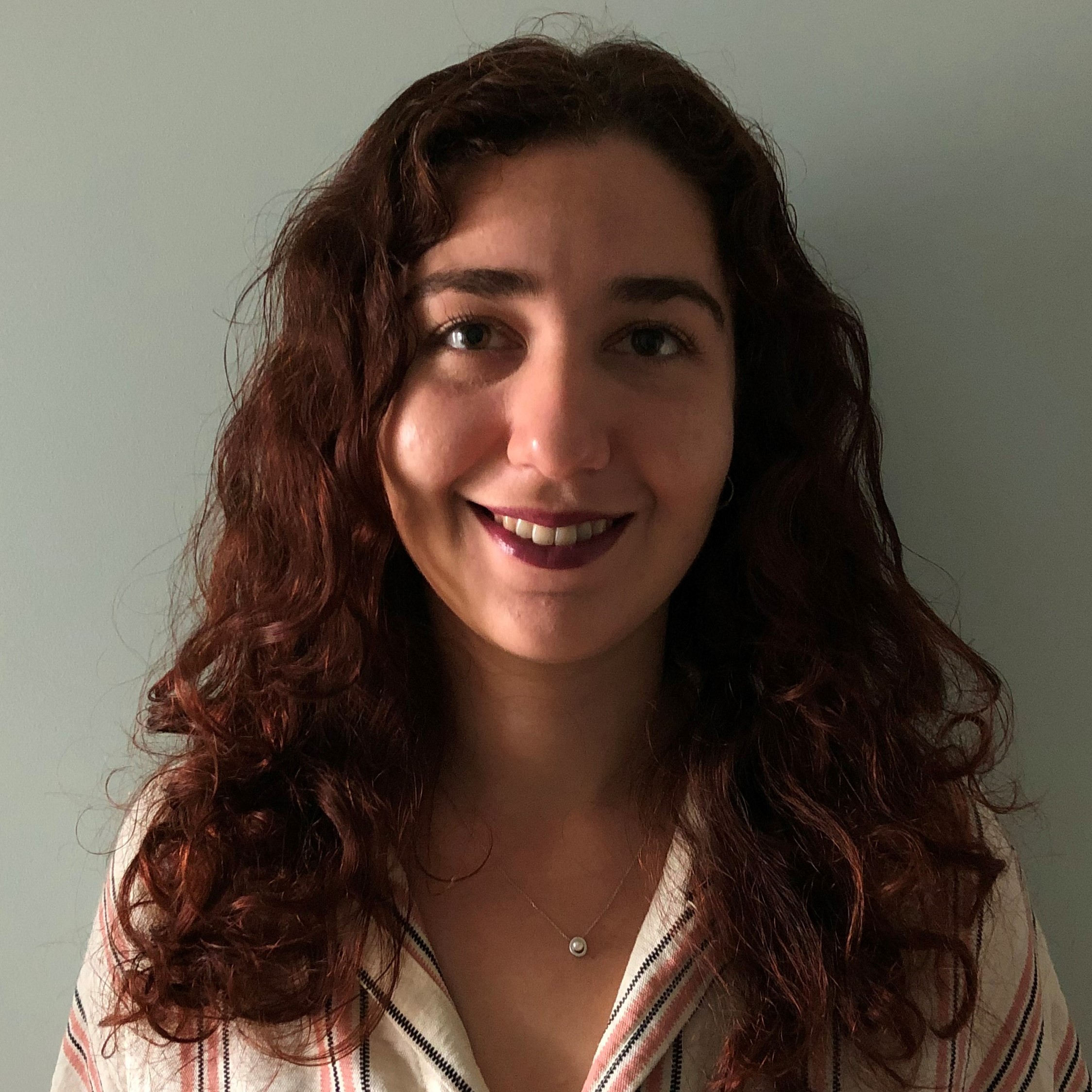 N. Kardelen Öztürk graduated from ITU Faculty of Architecture, Department of Urban and Regional Planning in 2017. She completed her master's degree in the ITU Graduate Education Institute Regional Planning program and continues her doctorate in Urban and Regional Planning program. As an urban planner in the Istanbul Spatial Address Registration System project carried out by IND Bilişim company in 2018, she worked on collecting spatial data with field studies and processing them on GIS. She worked as an urban planner at Zoning Planning company in 2019. In this process, she worked as the project coordinator of Model Development for Congregational Areas (CA) and Temporary Housing Areas (THA) within the scope of Increasing Istanbul's Urban Coping Power and had the opportunity to work on urban resilience, fragility, and sustainability. Between 2019 and 2021, she worked as a city planner at BİMTAŞ, a subsidiary of IMM, and improved herself in the fields of participatory process management and project management. During this period, she both took part in the writing phase and was the project coordinator of the Istanbul Vulnerability Map in the Fight Against the COVID-19 Epidemic project supported by the Istanbul Development Agency in 2020. Within the scope of the project, the fragility values of Istanbul's neighborhoods were visualized in the GIS environment through selected indicators based on social and spatial data. In her master's thesis, she conducted research on the rural areas of Istanbul and determined the factors and indicators for the resilience of rural areas in metropolitan cities, and created a model for Istanbul's Rural Resilience Index. In 2021 T.C. Preparation of Turkey Spatial Strategy Plan prepared in cooperation with the Ministry of Environment and Urbanization and ITU III. He took part in the project team in the phase works. In the same year, she started his academic career as a research assistant at Gebze Technical University, Faculty of Architecture, Department of Urban and Regional Planning.
N. Kardelen Öztürk graduated from ITU Faculty of Architecture, Department of Urban and Regional Planning in 2017. She completed her master's degree in the ITU Graduate Education Institute Regional Planning program and continues her doctorate in Urban and Regional Planning program. As an urban planner in the Istanbul Spatial Address Registration System project carried out by IND Bilişim company in 2018, she worked on collecting spatial data with field studies and processing them on GIS. She worked as an urban planner at Zoning Planning company in 2019. In this process, she worked as the project coordinator of Model Development for Congregational Areas (CA) and Temporary Housing Areas (THA) within the scope of Increasing Istanbul's Urban Coping Power and had the opportunity to work on urban resilience, fragility, and sustainability. Between 2019 and 2021, she worked as a city planner at BİMTAŞ, a subsidiary of IMM, and improved herself in the fields of participatory process management and project management. During this period, she both took part in the writing phase and was the project coordinator of the Istanbul Vulnerability Map in the Fight Against the COVID-19 Epidemic project supported by the Istanbul Development Agency in 2020. Within the scope of the project, the fragility values of Istanbul's neighborhoods were visualized in the GIS environment through selected indicators based on social and spatial data. In her master's thesis, she conducted research on the rural areas of Istanbul and determined the factors and indicators for the resilience of rural areas in metropolitan cities, and created a model for Istanbul's Rural Resilience Index. In 2021 T.C. Preparation of Turkey Spatial Strategy Plan prepared in cooperation with the Ministry of Environment and Urbanization and ITU III. He took part in the project team in the phase works. In the same year, she started his academic career as a research assistant at Gebze Technical University, Faculty of Architecture, Department of Urban and Regional Planning.
İlayda Kılıç / İstanbul Kent University, MSc Scholar
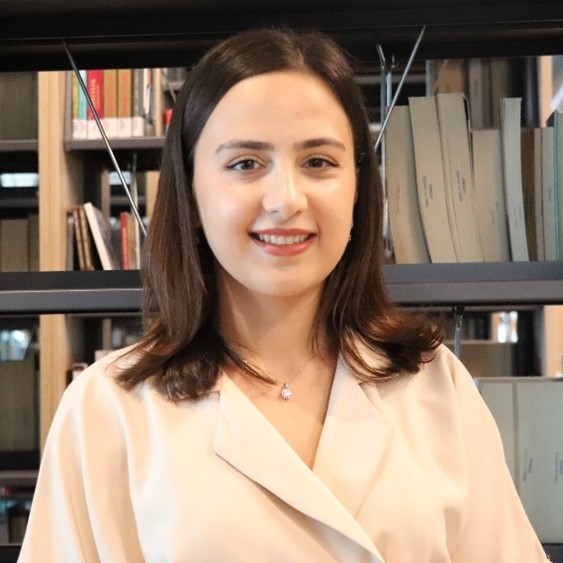 İlayda Kılıç graduated from the Department of Urban and Regional Planning at Gazi University Faculty of Architecture in 2020. Subsequently, in 2021, she started her master's degree in the Department of Urban Planning at Istanbul Technical University. During her undergraduate studies, she completed internships at two institutions, one public and one private. Her first internship was at the Spatial Planning Department of the Iller Bank, where she contributed to the preparation of 1/5000 and 1/1000 scale zoning plans, participated in the analysis stages using the Netcad program, and assisted in the preparation of various zoning plan reports. Her second internship was at Planevi Urbanism Inc., where she contributed to pre-planning analyses and the preparation of research reports. Throughout her student years, she actively participated in summer camps, workshops, seminars, symposiums, and colloquiums organized by TMMOB Chamber of Urban Planners, various municipalities, and universities. In 2023, she began her academic career as a research assistant in the Department of Urban Design and Landscape Architecture at Istanbul Kent University Faculty of Arts and Design, where she is currently continuing her academic journey.
İlayda Kılıç graduated from the Department of Urban and Regional Planning at Gazi University Faculty of Architecture in 2020. Subsequently, in 2021, she started her master's degree in the Department of Urban Planning at Istanbul Technical University. During her undergraduate studies, she completed internships at two institutions, one public and one private. Her first internship was at the Spatial Planning Department of the Iller Bank, where she contributed to the preparation of 1/5000 and 1/1000 scale zoning plans, participated in the analysis stages using the Netcad program, and assisted in the preparation of various zoning plan reports. Her second internship was at Planevi Urbanism Inc., where she contributed to pre-planning analyses and the preparation of research reports. Throughout her student years, she actively participated in summer camps, workshops, seminars, symposiums, and colloquiums organized by TMMOB Chamber of Urban Planners, various municipalities, and universities. In 2023, she began her academic career as a research assistant in the Department of Urban Design and Landscape Architecture at Istanbul Kent University Faculty of Arts and Design, where she is currently continuing her academic journey.
Bilge Kağan Özbay/ Pamukkale University, PhD Scholar
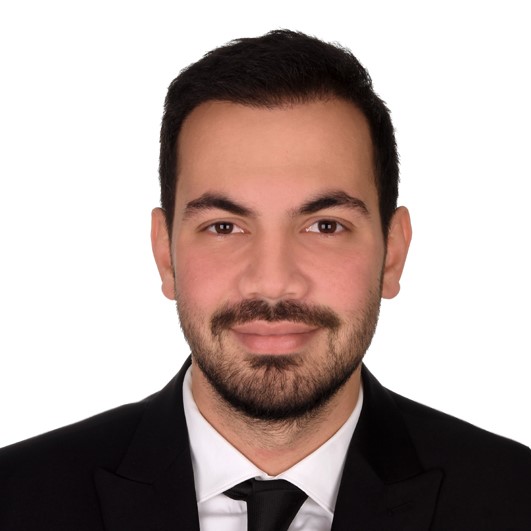 Bilge Kağan Özbay graduated from Istanbul University Department of Econometrics in 2018 and then completed his master's degree in Istanbul University Institute of Social Sciences Department of Statistics in 2023 and started his PhD education in Marmara University Department of Econometrics. In 2019, he worked as a Scholar Researcher at Istanbul University Urban Policies Application and Research Center and took part in many projects. In 2020, he worked as an Econometrician at Istanbul Planning Agency affiliated to Istanbul Metropolitan Municipality and took part in different projects analyzing district and neighborhood-based data in Istanbul. His research interests include econometric models and statistical methods. He is currently working as a research assistant in the Department of Econometrics at Pamukkale University.
Bilge Kağan Özbay graduated from Istanbul University Department of Econometrics in 2018 and then completed his master's degree in Istanbul University Institute of Social Sciences Department of Statistics in 2023 and started his PhD education in Marmara University Department of Econometrics. In 2019, he worked as a Scholar Researcher at Istanbul University Urban Policies Application and Research Center and took part in many projects. In 2020, he worked as an Econometrician at Istanbul Planning Agency affiliated to Istanbul Metropolitan Municipality and took part in different projects analyzing district and neighborhood-based data in Istanbul. His research interests include econometric models and statistical methods. He is currently working as a research assistant in the Department of Econometrics at Pamukkale University.
Eda Gül / Istanbul Technical University, Undergraduate Scholar
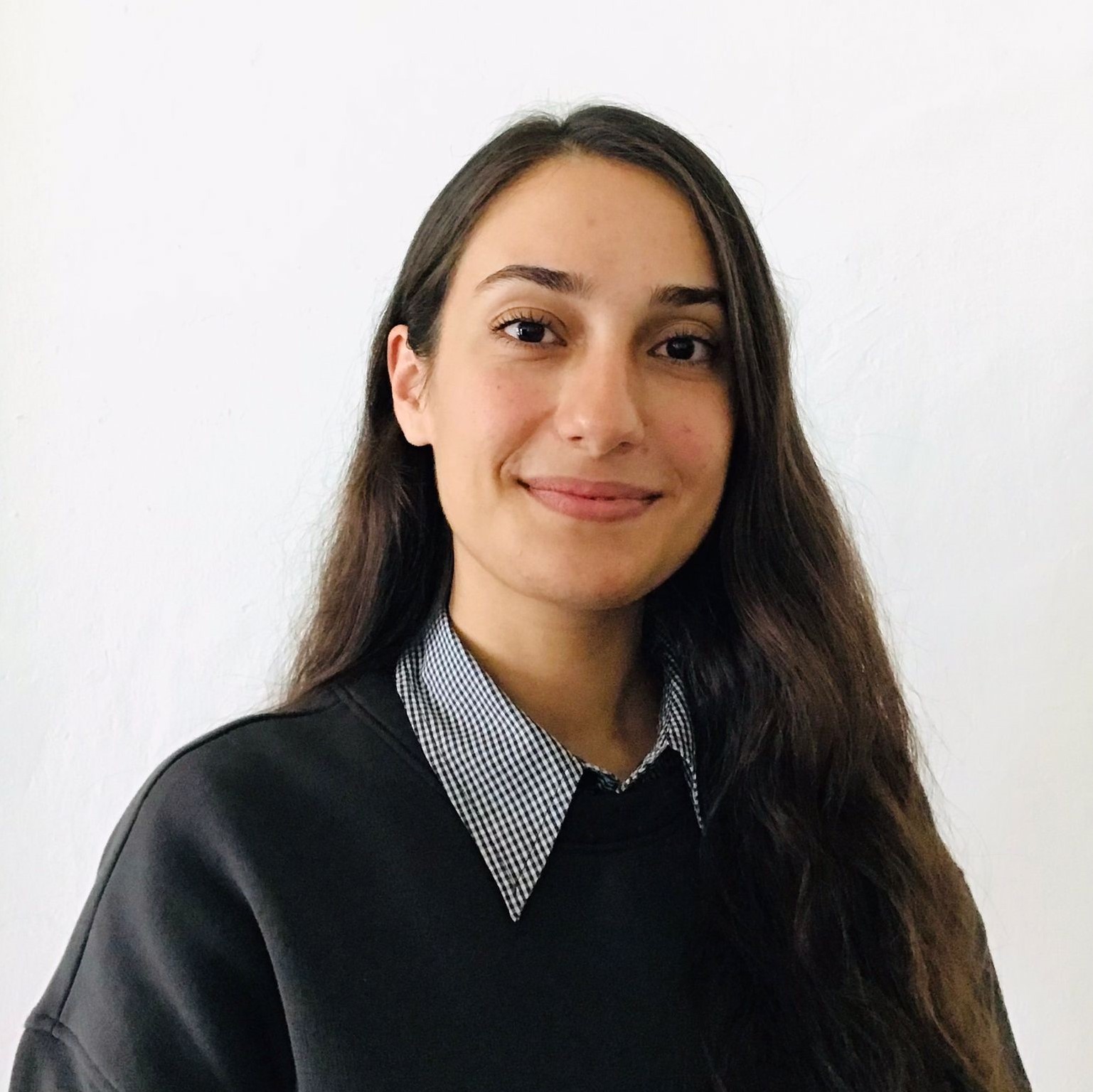 Eda Gül graduated from Istanbul Üsküdar High School in 2017. She started her undergraduate education at Istanbul Technical University, Department of City and Regional Planning in 2018. She took part in the processes of archiving and transferring data to digital during her internship at Beşiktaş Municipality Real Estate and Expropriation Directorate in 2021. She first did an internship in the urban transformation unit of Odak Şehircilik in 2022. During this internship, she had the experience of observing the residential distribution phase in Fikirtepe and field detection in Esenler. After her internship at Odak Şehircilik, she started her internship at Kent Şehircilik. During her internship, she prepared information reports for the lands in the Mediterranean and Aegean regions. Can use ArcGIS, Autocad, Photoshop, and SketchUp programs. Gül, who has made different student projects from 1/50.000 scale to 1/1000 scale in Thrace Region, Kırklareli, Vize, Şile, and Tuzla, continues her undergraduate education at ITU.
Eda Gül graduated from Istanbul Üsküdar High School in 2017. She started her undergraduate education at Istanbul Technical University, Department of City and Regional Planning in 2018. She took part in the processes of archiving and transferring data to digital during her internship at Beşiktaş Municipality Real Estate and Expropriation Directorate in 2021. She first did an internship in the urban transformation unit of Odak Şehircilik in 2022. During this internship, she had the experience of observing the residential distribution phase in Fikirtepe and field detection in Esenler. After her internship at Odak Şehircilik, she started her internship at Kent Şehircilik. During her internship, she prepared information reports for the lands in the Mediterranean and Aegean regions. Can use ArcGIS, Autocad, Photoshop, and SketchUp programs. Gül, who has made different student projects from 1/50.000 scale to 1/1000 scale in Thrace Region, Kırklareli, Vize, Şile, and Tuzla, continues her undergraduate education at ITU.
Cem Aydın / Yıldız Technical University, Undergraduate Scholar
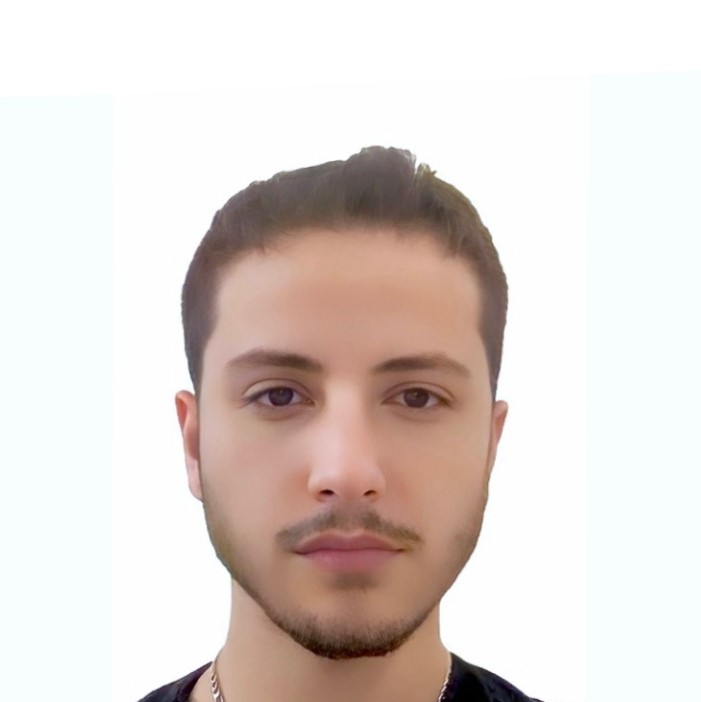 Cem Aydın, started his undergraduate education at Kırklareli University, Faculty of Architecture, Department of City and Regional Planning in 2019. After 2 years of education, he made a horizontal transfer between institutions in 2021 and transferred to Yıldız Technical University, Faculty of Architecture, Department of City and Regional Planning. Conversing with the concepts of smart cities and technological CIS systems, Cem Aydın started to study Computer Programming at Istanbul University as the second university in 2022. During his City and Regional Planning education, he did 4 different field studies. During her internship at the Ministry of Environment and Urbanization, Department of Urban Transformation, he examined the urban transformation works in the Suriçi region of Diyarbakir. By doing his other internship at Istanbul Metropolitan Municipality, he had the opportunity to assist in analysis studies in the Beyoğlu region. Since 2020, he has been working on the Esri Canada group, conducting a Python-Based CIS Analysis Certification training study and studies on the concept of city development with software. Also, Cem Aydın can use Rhino, Blender, Autodesk programs and CIS systems professionally.
Cem Aydın, started his undergraduate education at Kırklareli University, Faculty of Architecture, Department of City and Regional Planning in 2019. After 2 years of education, he made a horizontal transfer between institutions in 2021 and transferred to Yıldız Technical University, Faculty of Architecture, Department of City and Regional Planning. Conversing with the concepts of smart cities and technological CIS systems, Cem Aydın started to study Computer Programming at Istanbul University as the second university in 2022. During his City and Regional Planning education, he did 4 different field studies. During her internship at the Ministry of Environment and Urbanization, Department of Urban Transformation, he examined the urban transformation works in the Suriçi region of Diyarbakir. By doing his other internship at Istanbul Metropolitan Municipality, he had the opportunity to assist in analysis studies in the Beyoğlu region. Since 2020, he has been working on the Esri Canada group, conducting a Python-Based CIS Analysis Certification training study and studies on the concept of city development with software. Also, Cem Aydın can use Rhino, Blender, Autodesk programs and CIS systems professionally.
Utku Metin Us / Mimar Sinan Fine Arts University, Undergraduate Scholar
 Utku Metin Us, graduated from Emlakbank Süleyman Demirel Anatolian High School in 2019. In 2020, he started the Department of City and Regional Planning at Mimar Sinan Güzel Sanatlar University. In 2022, he completed his first internship as an intern planner at the Directorate of Urban Renewal at Istanbul İmar İnşaat AŞ, a subsidiary of IMM. During the internship, during the design and reporting process in projects such as Bayrampaşa Prison Urban Renewal Project, Karadolap Urban Renewal Project, Şişli/Yayla Urban Renewal Project, Istanbul is Renewing; He took part in the field in processes such as meeting with citizens and turnkey delivery. Utku Metin Us, who was introduced to Scouting in 2013, actively worked as a senior scout in Izmir Scouting and Nature Athletes Club Association (İZDOS) until 2017 and in PİNA Scouting Club for a certain period after 2017. While actively scouting, he participated in national and local camps and acquired various specialties, and was awarded national and international certificates (Silver Award, Jamboree 2016-2017).
Utku Metin Us, graduated from Emlakbank Süleyman Demirel Anatolian High School in 2019. In 2020, he started the Department of City and Regional Planning at Mimar Sinan Güzel Sanatlar University. In 2022, he completed his first internship as an intern planner at the Directorate of Urban Renewal at Istanbul İmar İnşaat AŞ, a subsidiary of IMM. During the internship, during the design and reporting process in projects such as Bayrampaşa Prison Urban Renewal Project, Karadolap Urban Renewal Project, Şişli/Yayla Urban Renewal Project, Istanbul is Renewing; He took part in the field in processes such as meeting with citizens and turnkey delivery. Utku Metin Us, who was introduced to Scouting in 2013, actively worked as a senior scout in Izmir Scouting and Nature Athletes Club Association (İZDOS) until 2017 and in PİNA Scouting Club for a certain period after 2017. While actively scouting, he participated in national and local camps and acquired various specialties, and was awarded national and international certificates (Silver Award, Jamboree 2016-2017).
Tuğba Sert / Istanbul Technical University, Undergraduate Scholar
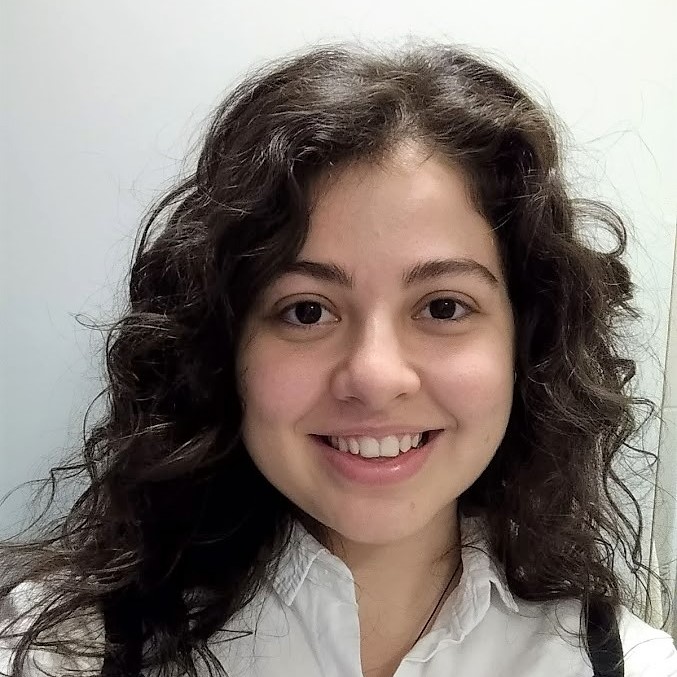 Tuğba Sert, who received her undergraduate education in the Department of Urban and Regional Planning at Istanbul Technical University, is doing a double major in Geomatics Engineering to gain an engineering and technical perspective. She developed her social responsibility side by taking part in many volunteering projects, as well as in projects with urban and design concerns such as Istanbul's Plan B and Solar Decathlon. She got degrees from competitions to generate ideas on sustainable energy, ecological cities, the climate crisis and its impact on cities, sustainable production and agriculture, and inequalities of opportunity. She improved himself in analysis and report studies with her private planning office internship experience. She took part in the project "The Relationship of Living Environments with Health Indicators and Quality of Life: A Community Participation Model Proposal for Healthy Cities" within the scope of the TÜBİTAK STAR program. Under the IMM Participatory Planning Coordinatorship, it contributed to projects that touched the public, artists, and tradesmen in the field. Tuğba, who won the first prize in the Middle Black Sea Development Agency National Idea Contest and the second prize in the Fatih Municipality Ideathon Contest, has been developing herself as a Fellow of the Turkish Entrepreneurship Foundation in the entrepreneurship ecosystem, where she has gained start-up experiences in addition to the leadership and entrepreneurship training she has received.
Tuğba Sert, who received her undergraduate education in the Department of Urban and Regional Planning at Istanbul Technical University, is doing a double major in Geomatics Engineering to gain an engineering and technical perspective. She developed her social responsibility side by taking part in many volunteering projects, as well as in projects with urban and design concerns such as Istanbul's Plan B and Solar Decathlon. She got degrees from competitions to generate ideas on sustainable energy, ecological cities, the climate crisis and its impact on cities, sustainable production and agriculture, and inequalities of opportunity. She improved himself in analysis and report studies with her private planning office internship experience. She took part in the project "The Relationship of Living Environments with Health Indicators and Quality of Life: A Community Participation Model Proposal for Healthy Cities" within the scope of the TÜBİTAK STAR program. Under the IMM Participatory Planning Coordinatorship, it contributed to projects that touched the public, artists, and tradesmen in the field. Tuğba, who won the first prize in the Middle Black Sea Development Agency National Idea Contest and the second prize in the Fatih Municipality Ideathon Contest, has been developing herself as a Fellow of the Turkish Entrepreneurship Foundation in the entrepreneurship ecosystem, where she has gained start-up experiences in addition to the leadership and entrepreneurship training she has received.
COOPERATION PROTOCOL SIGNED WITH BAGCILAR MUNICIPALITY
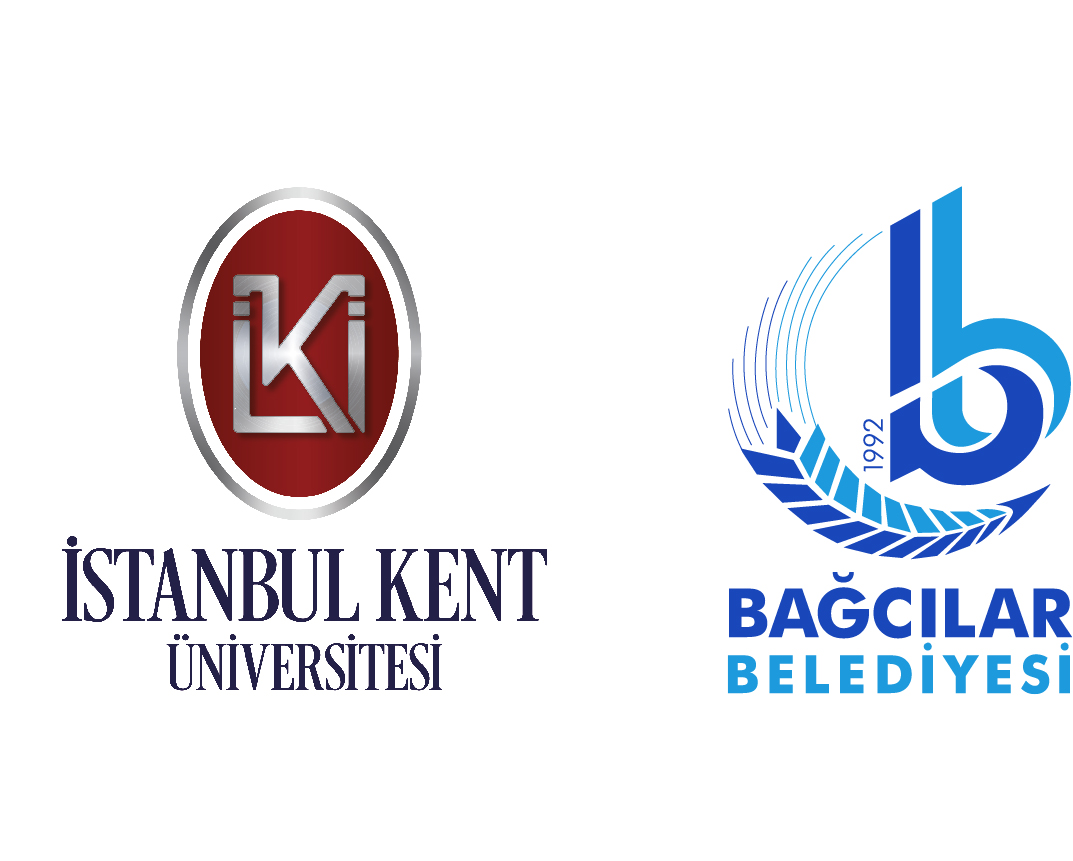
An Urban Research Cooperation Protocol was signed between Istanbul Kent University and Bağcılar Municipality. Within the scope of the cooperation protocol, cooperation will be made for the research project titled "The Sustainable Development and Transformation Model of Manufacturing Industrial Zones in Cities: The Case of Istanbul Bağcılar District" supported by TÜBİTAK within the framework of the 3501 Career Development Program and carried out at Istanbul Kent University. With this protocol, other research and studies on the city proposed by the university or municipality will also be possible.
"ATÖLYEKENT" SEMINAR AND DISCOVERY TRIP
At our event on 26.09.2022, we first held a seminar where we shared the details and content of the project with our participants. Afterwards, we organized an expedition to Mahmutbey, on 15 July and the Bağlar neighbourhoods of the Bağcılar district. During the expedition, we observed the characteristics of the urban microform and industrial areas in the area and obtained our preliminary findings for the fieldwork within the scope of the project.

GEOGRAPHICAL INFORMATION SYSTEMS EDUCATION
Geographic Information Systems training was given by Didem Bıçkıcı, who was part of our project team, on 27-28-29 September. Within the scope of the training, studies were carried out on data types, database creation, GIS tools, and spatial processing of data on GIS.
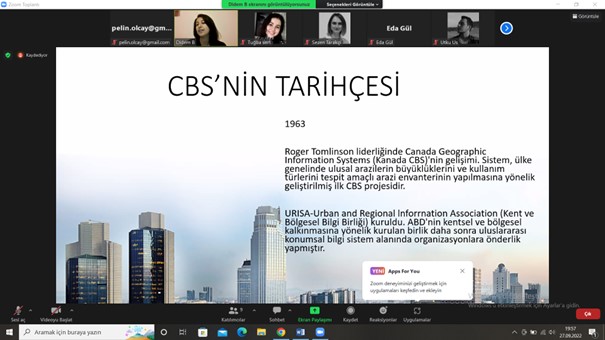
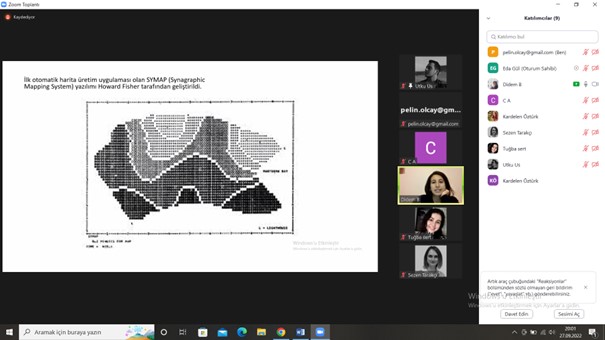
BASIC LEVEL NETCAD EDUCATION
A basic level of NET CAD training was given to the project team by the Geographic Information Systems specialist working at NET CAD on October 4-5-6. Within the scope of the training, basic map and projection information, creation of project parameters, geographical referencing, data production, viewing, editing and query operations, map and project production, mapping and output processes were detailed.
TÜBİTAK 3501 PROJECT EXPERIENCE SEMINARS
Seminars were held on 24-26 October 2022 as part of the "Project Experience Days" of Kent University. Asst. Prof. G. Pelin Olcay and Asst. Prof. Sezen Tarakçı conveyed the experiences of our project during and after the application process to the students and academic staff.
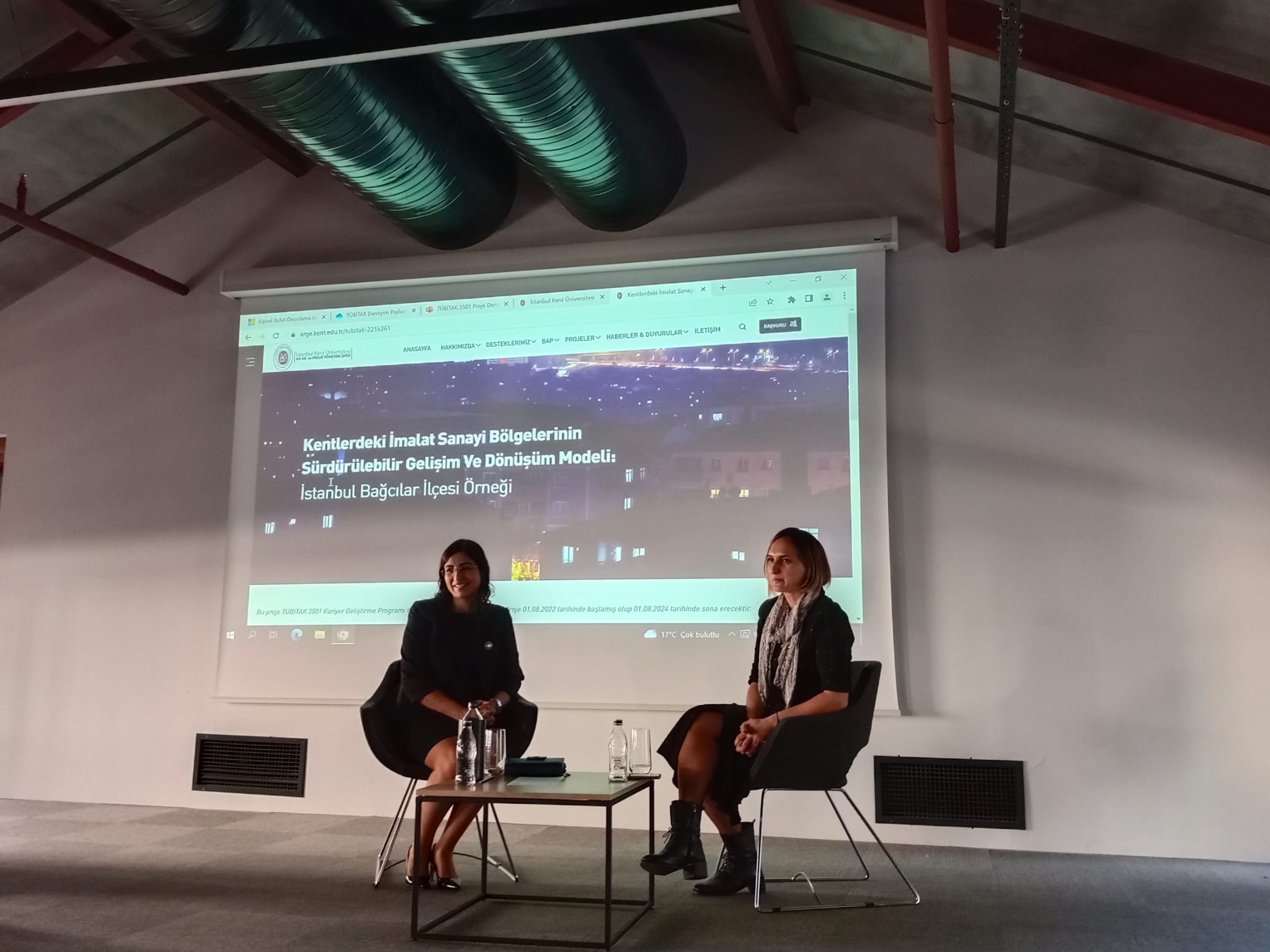
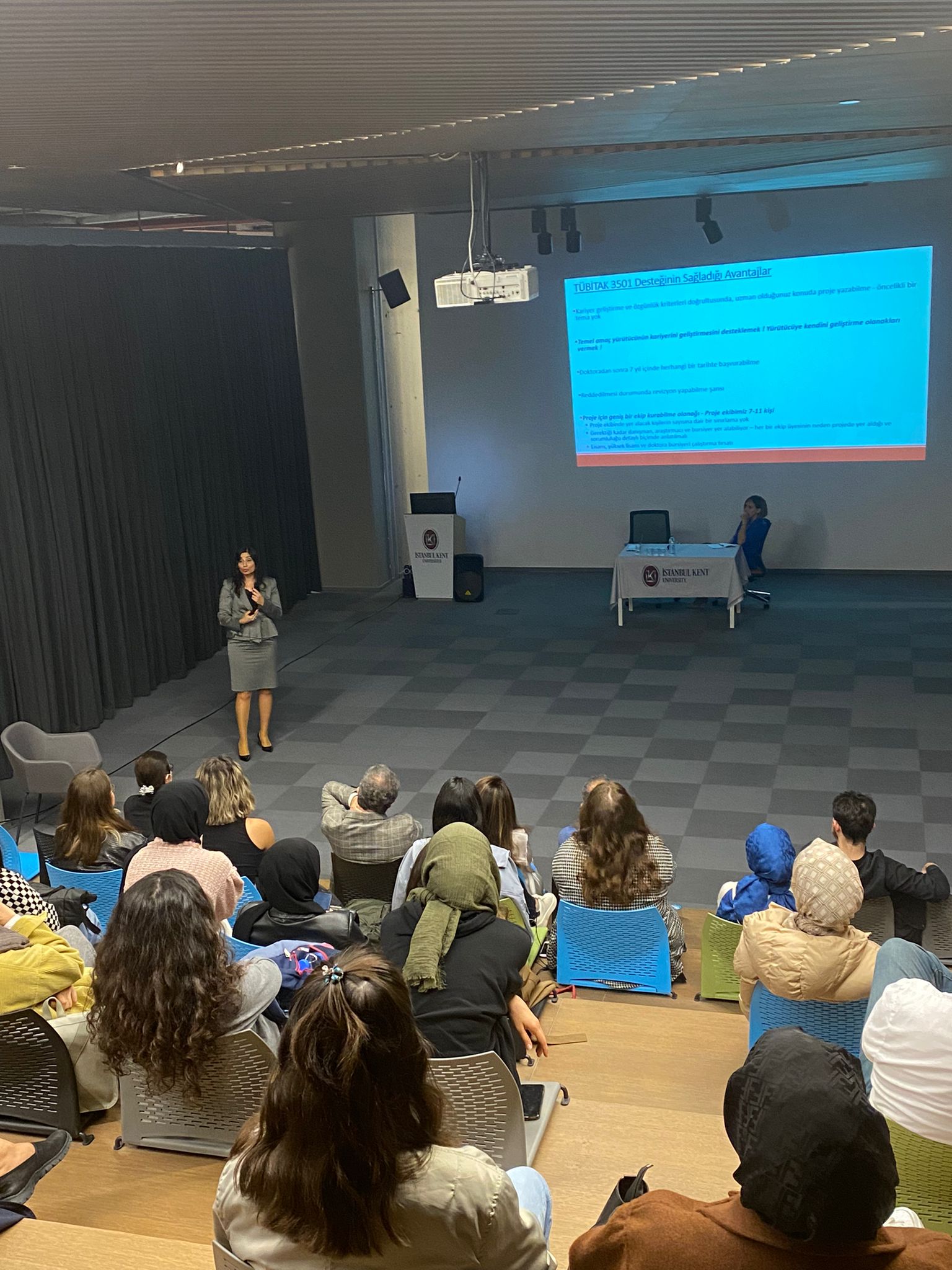
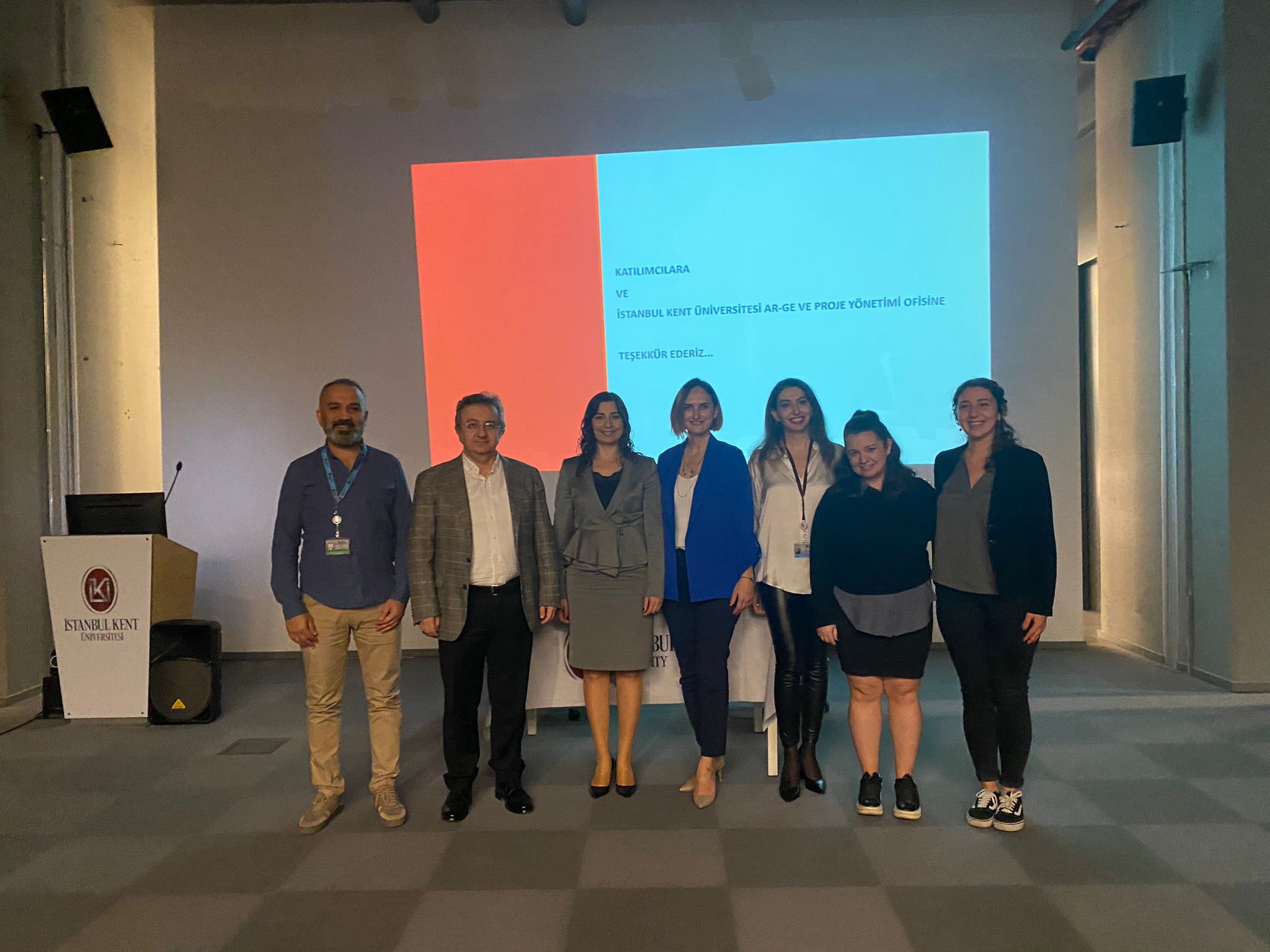
46. COLLOQUIUM of DSG JUSTICE IN SOCIETY AND SPACE
Organized by the TMMOB Chamber of City Planners on 6-8 November 2022, the 46th Colloquium on 8 November World Urbanism Day was held in Eskişehir this year. As part of the colloquium, Dr Instructor Member Sezen Tarakçı and Dr Instructor The presentation of the paper titled "The Untransformed Spaces in the Manufacturing Areas in the Transformation Process: The Example of the Press Express Axis" prepared by its member G. Pelin Olcay was presented.
.jpg)
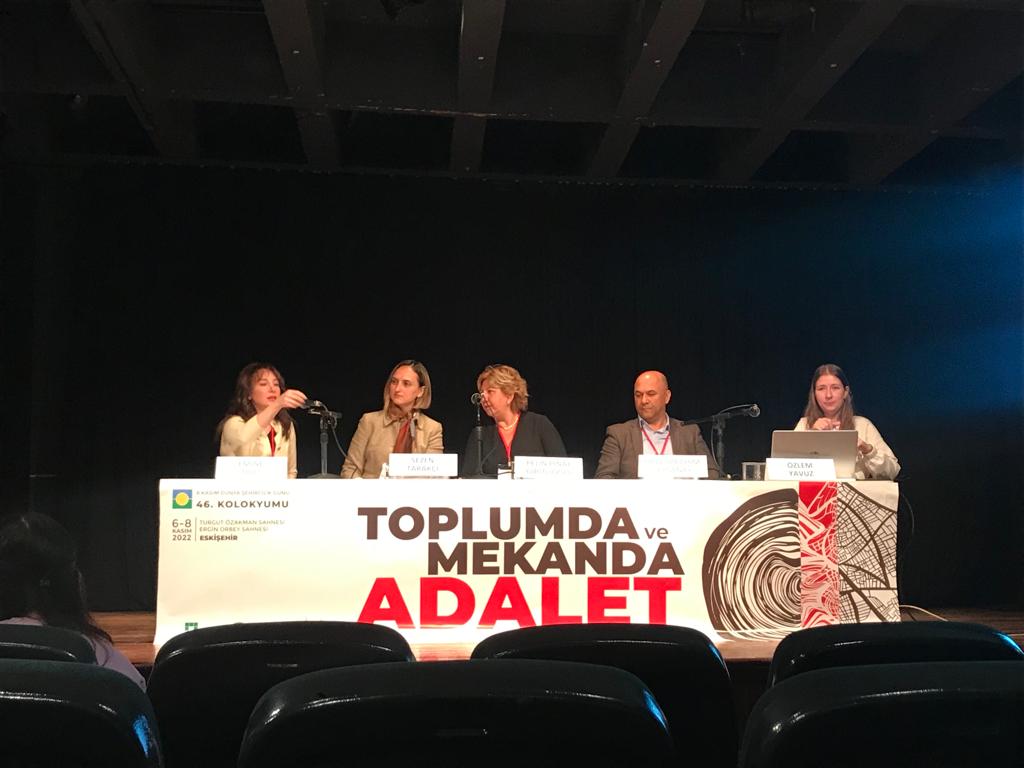
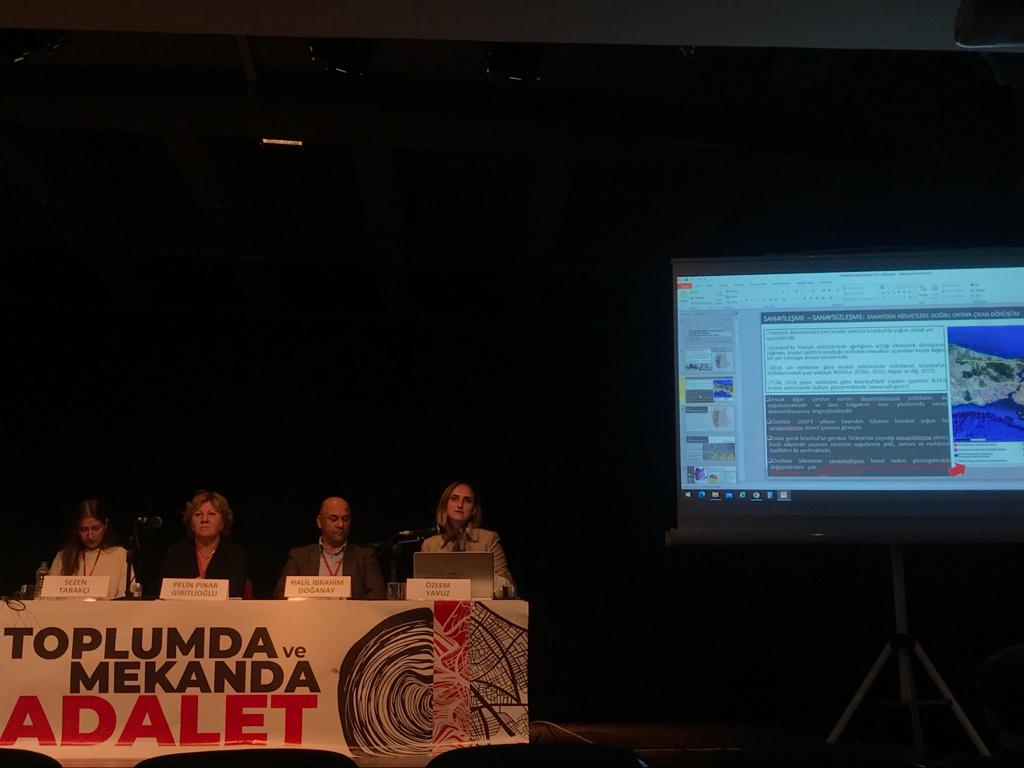
ISTANBUL METROPOLITAN MUNICIPALITY EARTHQUAKE WORKING GROUP MEETING
On February 25, 2023, Istanbul Metropolitan Municipality (IBB) organized an Earthquake Working Group Meeting in cooperation with Istanbul Planning Agency (IPA) at IPA Campus. Prof. Dr. Lecturer. Prof. Dr. Pelin Olcay participated in the meeting where recommendations for Istanbul were developed and reported on 7 different themes: Logistics, Engineering, Urbanism and Architecture, Social, Health, Economic, Administrative and Legal.
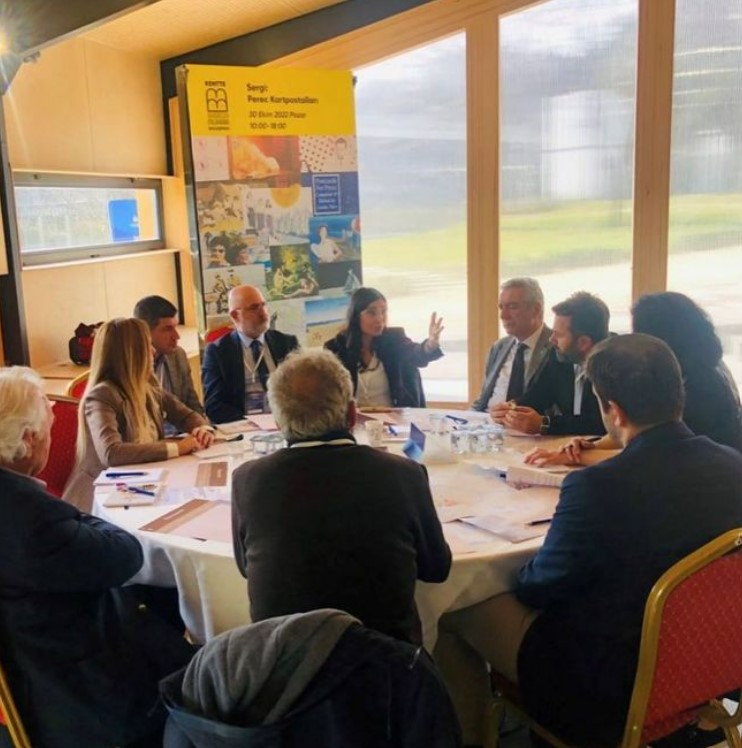
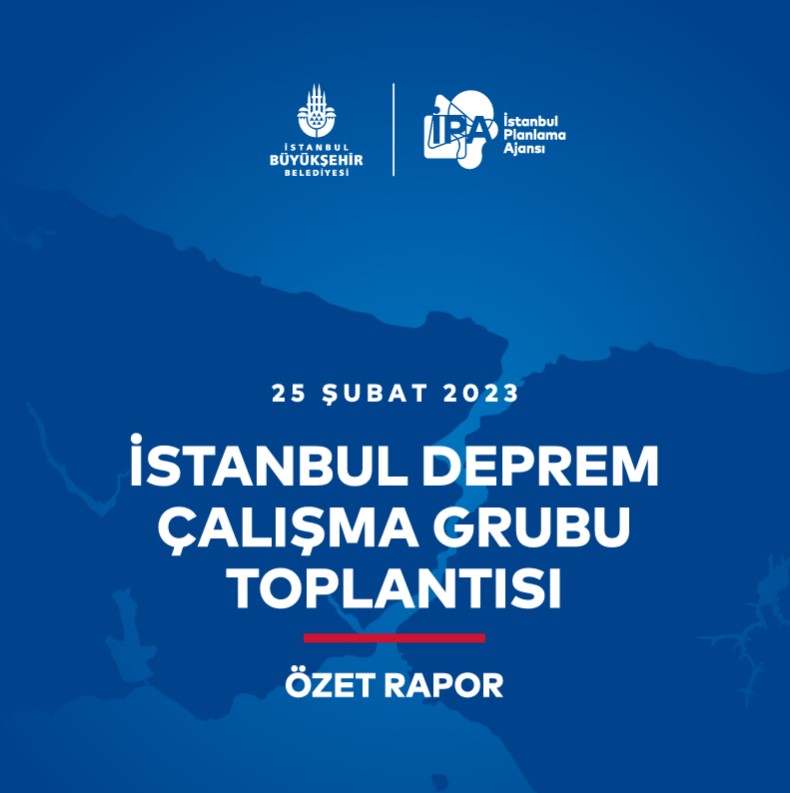
BAĞCILAR MUNICIPALITY WORKING MEETING
Within the scope of our cooperation with Bağcılar Municipality, we held a working meeting on March 20, 2023. In the meeting we held on Sustainable Transformation of Bağcılar and Sustainability Strategies in Bağcılar, we shared the important field findings of our project with Mr. Abdullah Özdemir, Mayor of Bağcılar Municipality. Our cooperation will continue for the Sustainability Strategy and Sustainability Action Plan of Bağcılar.
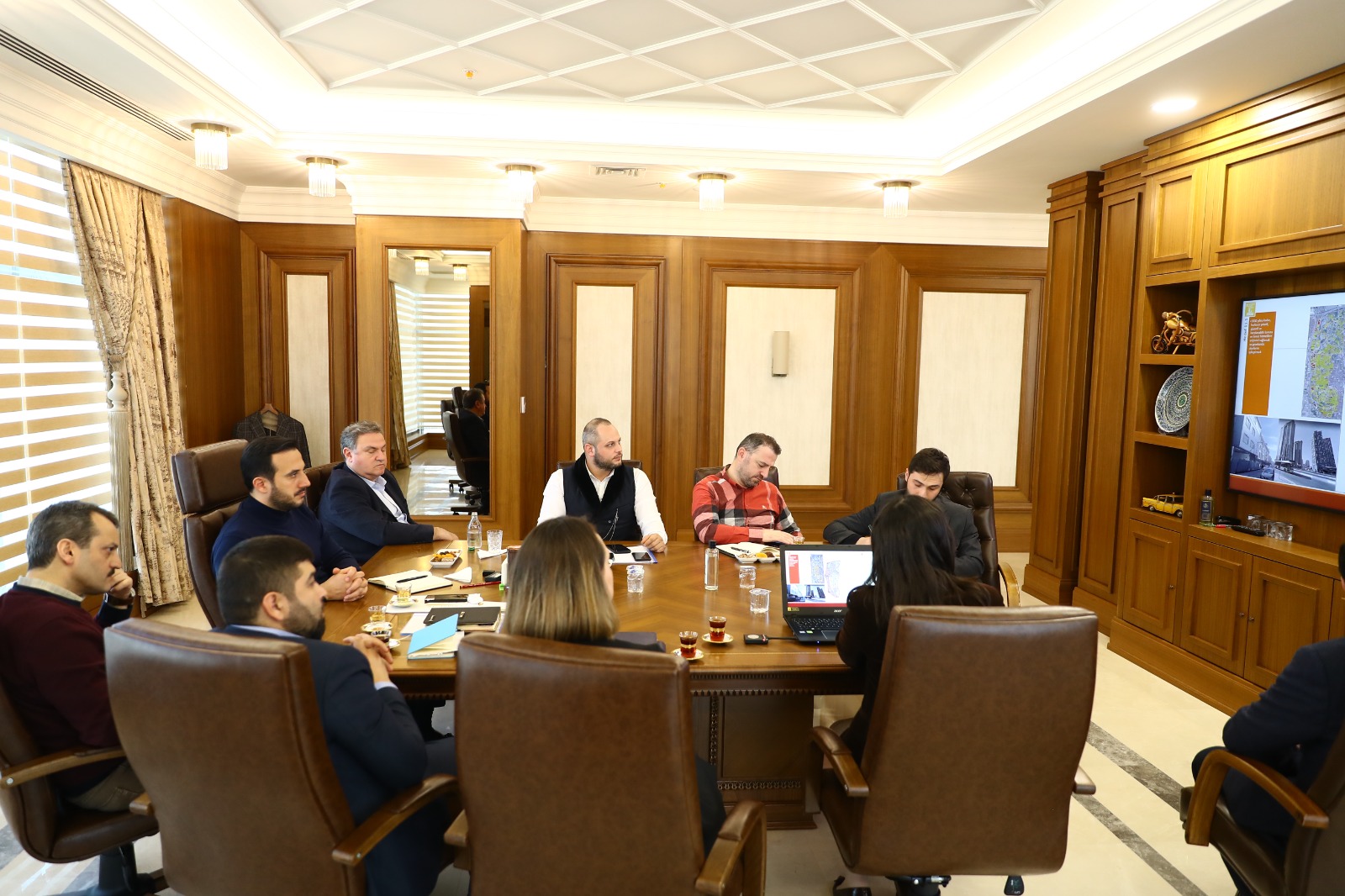
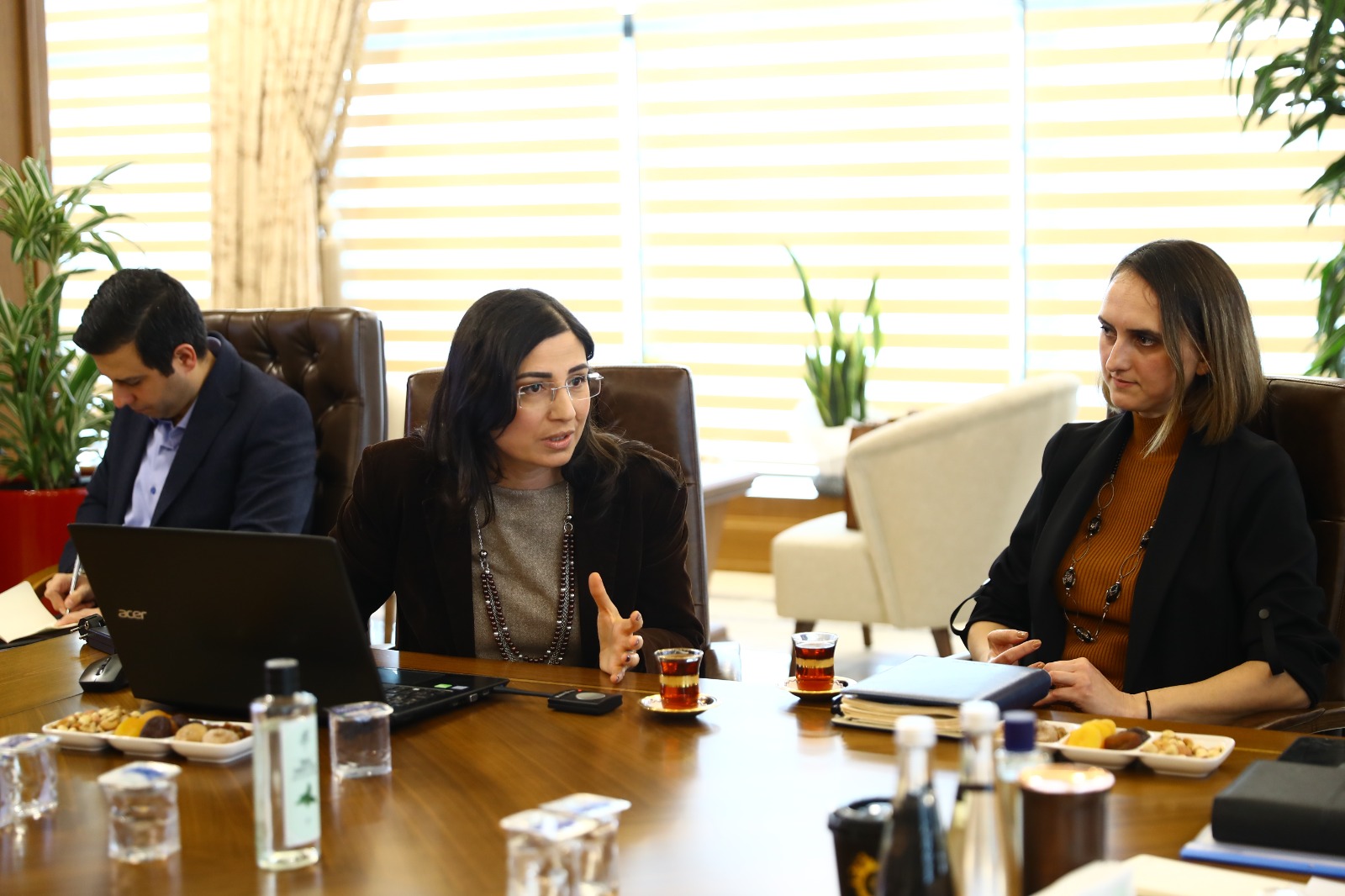
(1).jpeg)
BAHÇEŞEHİR UNIVERSITY OPEN COURSE IN EARTHQUAKE SOCIOLOGY
We participated in the session of the Open Course on Earthquake Sociology, organized by BAUMUS (Bahçeşehir University, Migration and Urban Studies Center) and BAU Sociology Department and conducted by Prof. Dr. Ulaş Sunata, on March 23, 2023. As one of the invited speakers, Dr. Lecturer G. Pelin Olcay made a presentation on "Earthquake Risk and Displacement of Economic Activities" that the lecture series is planned to be turned into a book.
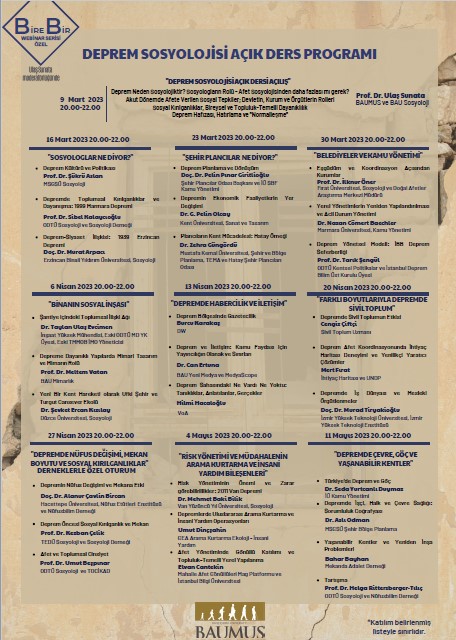
MSGSU URBAN PLANNING MASTER'S WORKSHOP
Prof. Dr. Fatma Ünsal, Assoc. Prof. Dr. Tansel Erbil and Assoc. Assist. Prof. Dr. Fatma Ünsal, Assoc. Prof. Dr. Fatma Ünsal, Assoc. Prof. Dr. Fatma Ünsal, Assoc. Prof. Dr. Tansel Erbil and Research Assistant Beren Tüylüoğlu, we attended the MSGSU Urban Planning Master's Workshop, where they studied the transformation of the industrial sector in Istanbul and we shared the preliminary findings of your project.
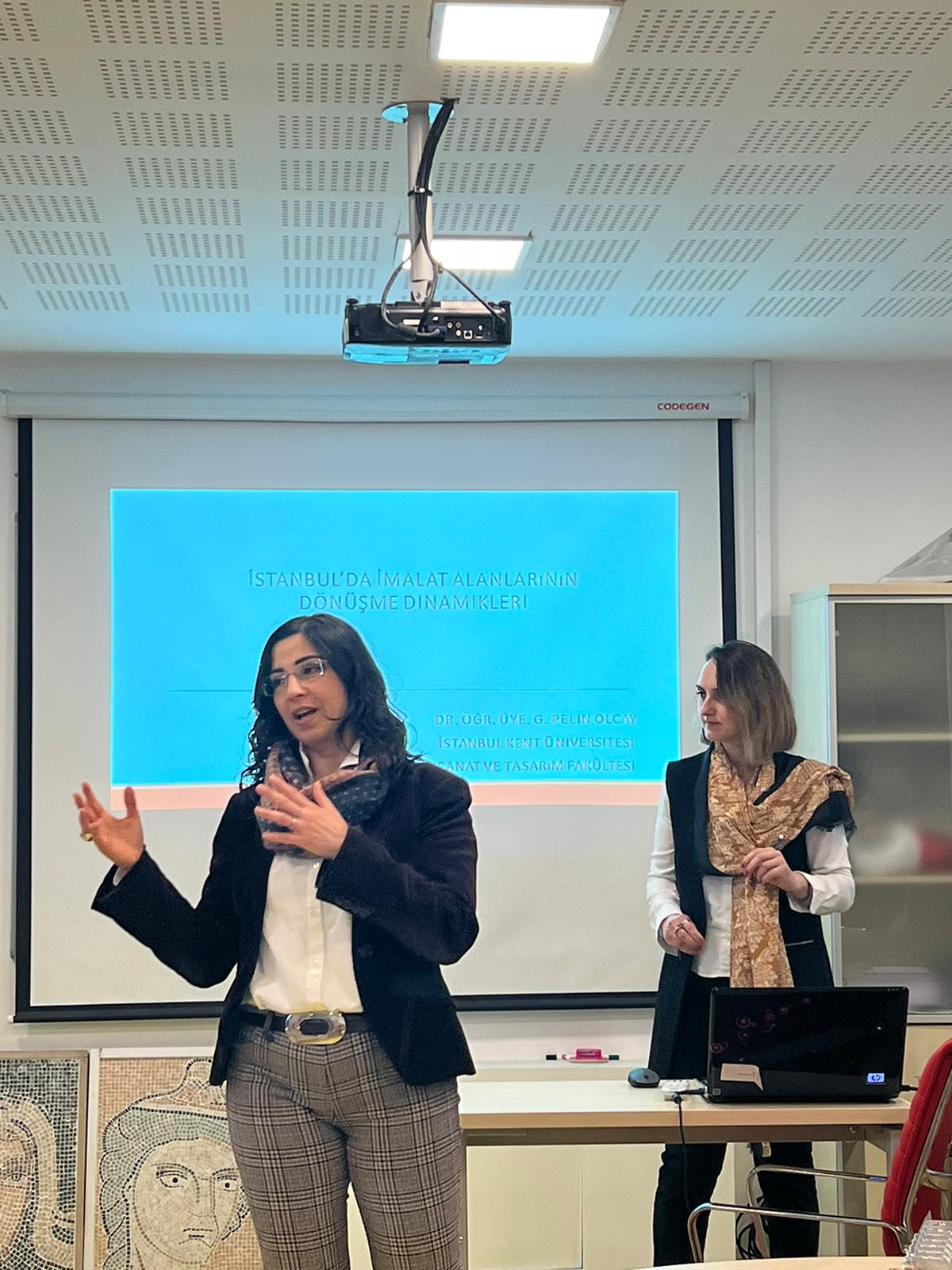
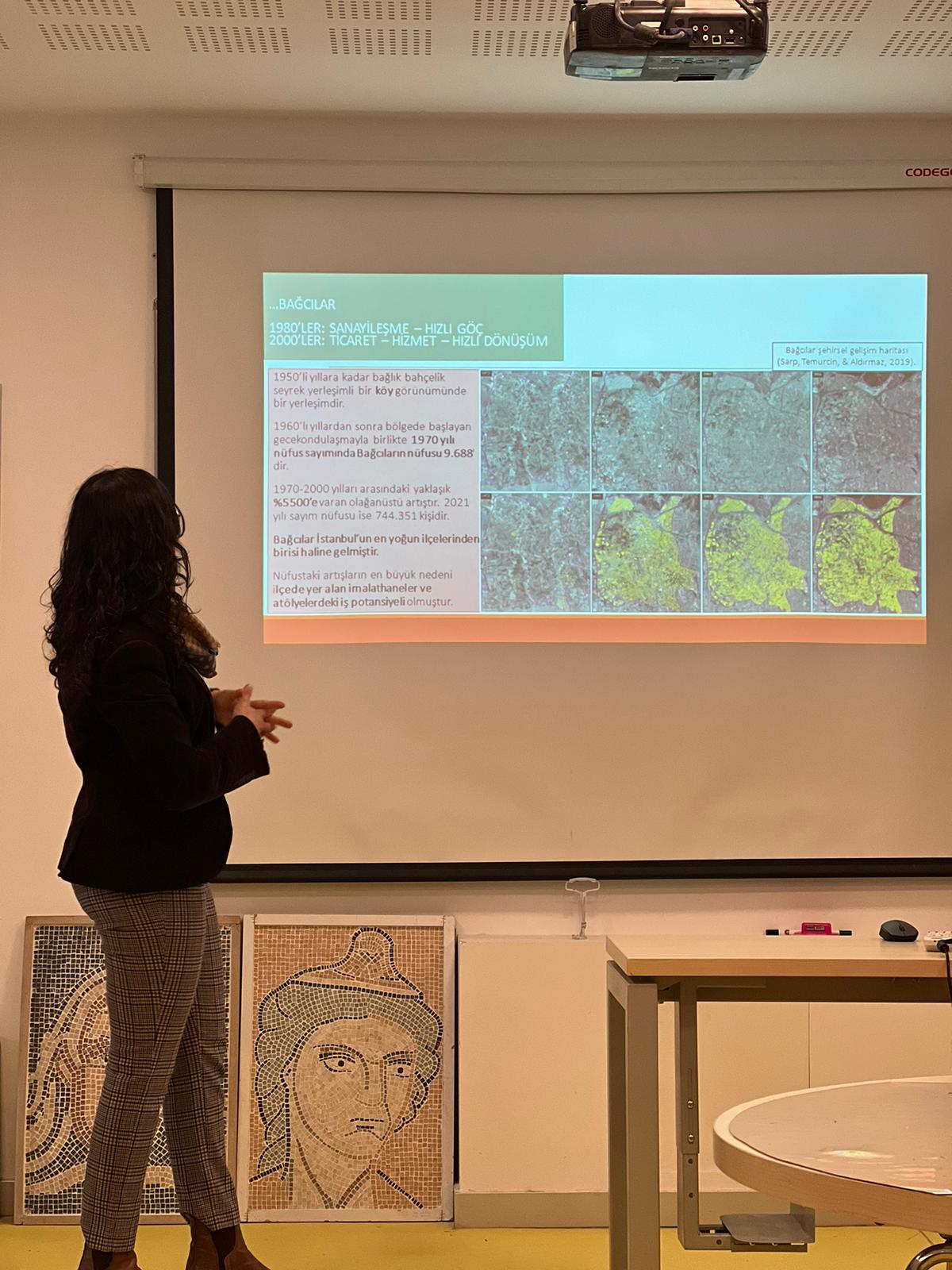
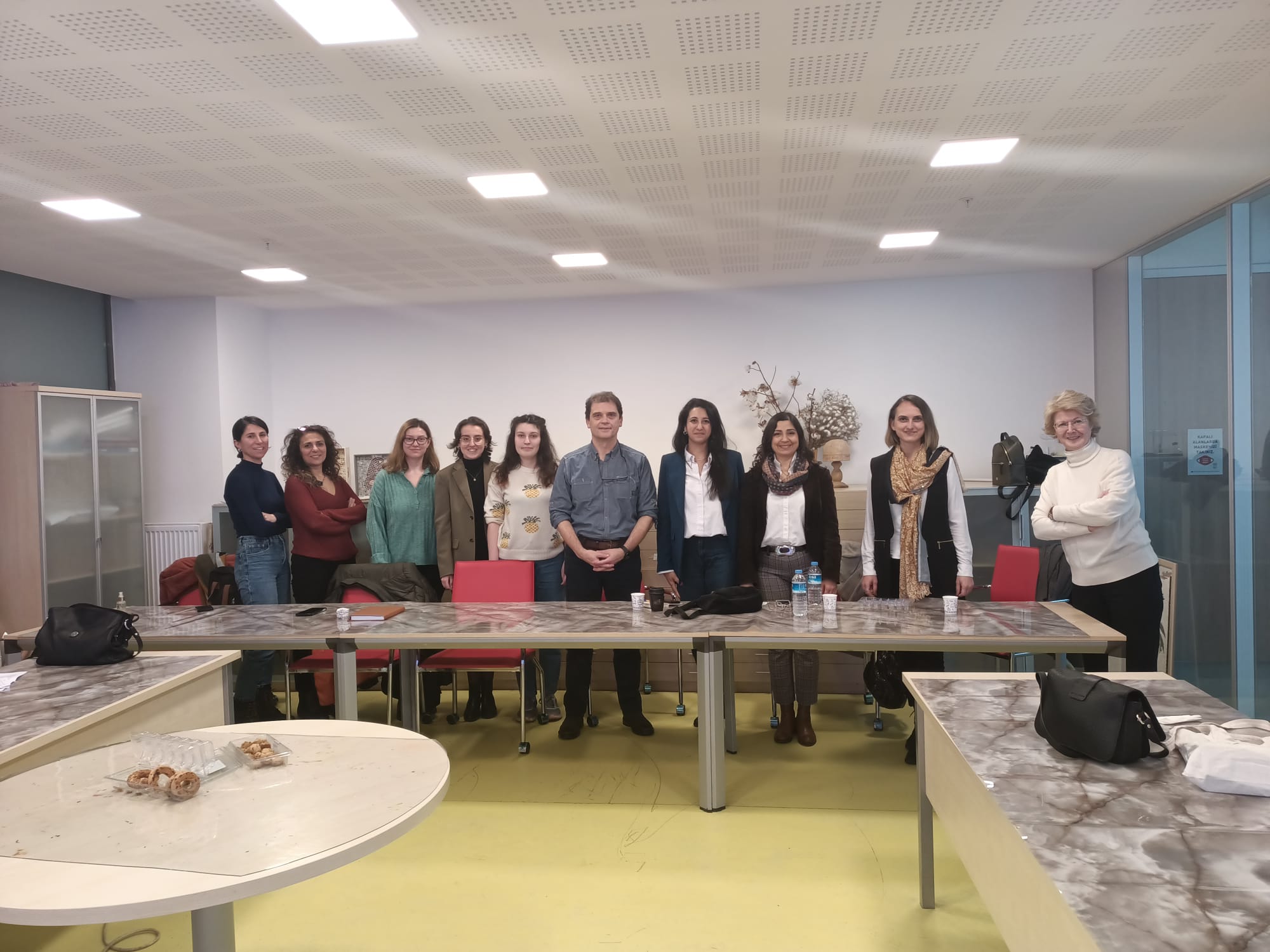
ITALY STUDY VISIT / PRATO
Within the scope of the study visit to Italy, we shared the findings of our research project in our meetings with experts from Monash University and The University of Florence in Prato on 08 May 2023. They shared with us their experiences on the development of the textile industry and design in Prato and the current priorities of the sector.



ITALY STUDY VISIT / MILANO BICOCCA UNIVERSITY WORKSHOP
Within the scope of the study visit to Italy, we held a workshop with Milano Bicocca University on 10 May 2023 on the transformation of manufacturing areas and the development of the design industry in metropolitan cities. We had the chance to discuss the differences and similarities between Milan and Istanbul.



ITALY STUDY VISIT / MUNICIPALITY OF MILANO
Within the scope of the study visit to Italy, we held a meeting with the officials of the Municipality of Milan on 11 May 2023. We shared information about the "Luiss Hub", which is implemented with the cooperation of the municipality, university and private sector, the design sector and other issues related to our project.



ITALY STUDY VISIT / MILANO BASE FIELD TRIP
Within the scope of the study visit to Italy, we made a field trip to "Milano Base Cultural Centre" on 12 May 2023 with the team that transformed the area. We shared information on the methods and effects of urban transformation in production areas.
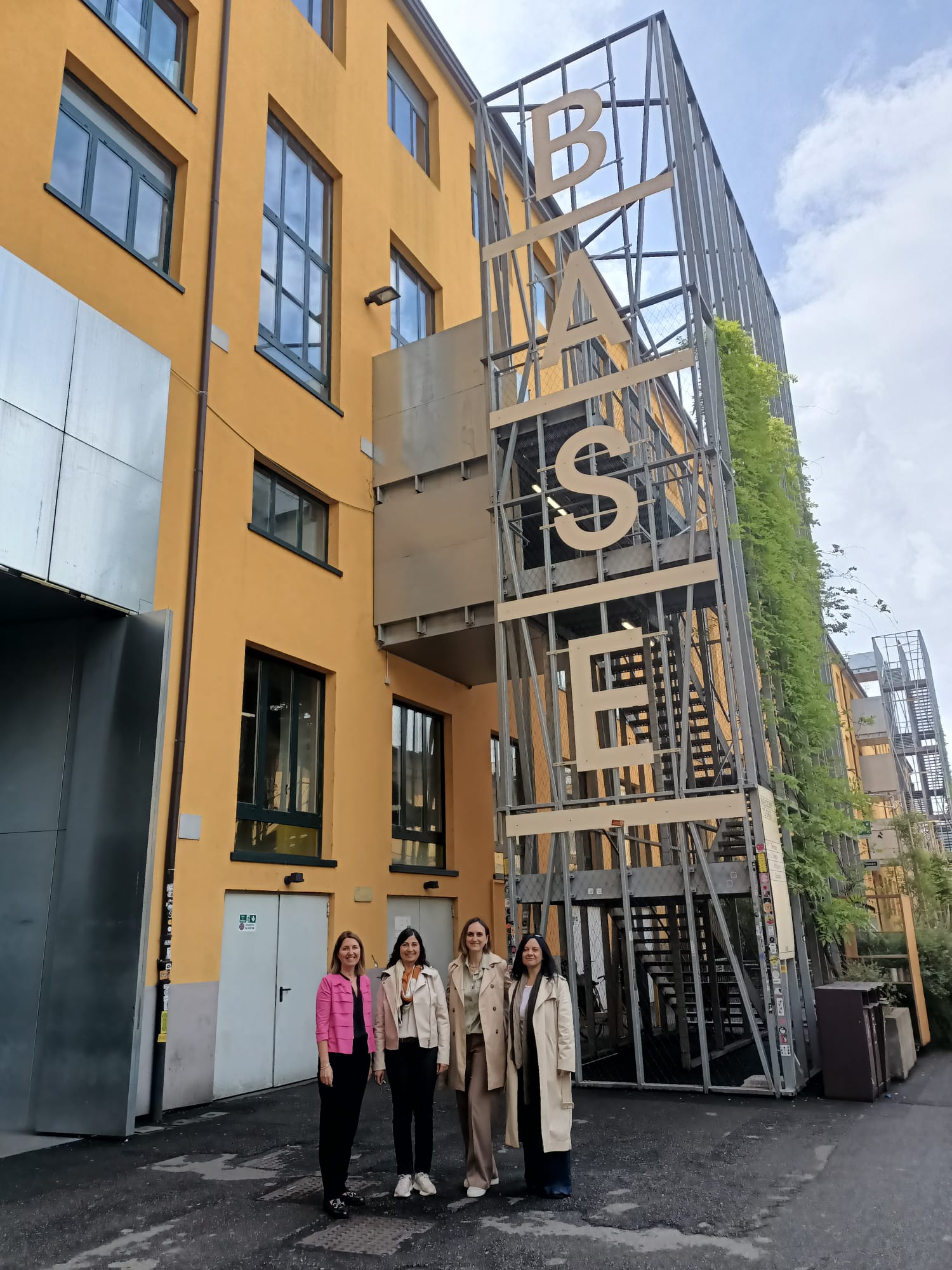
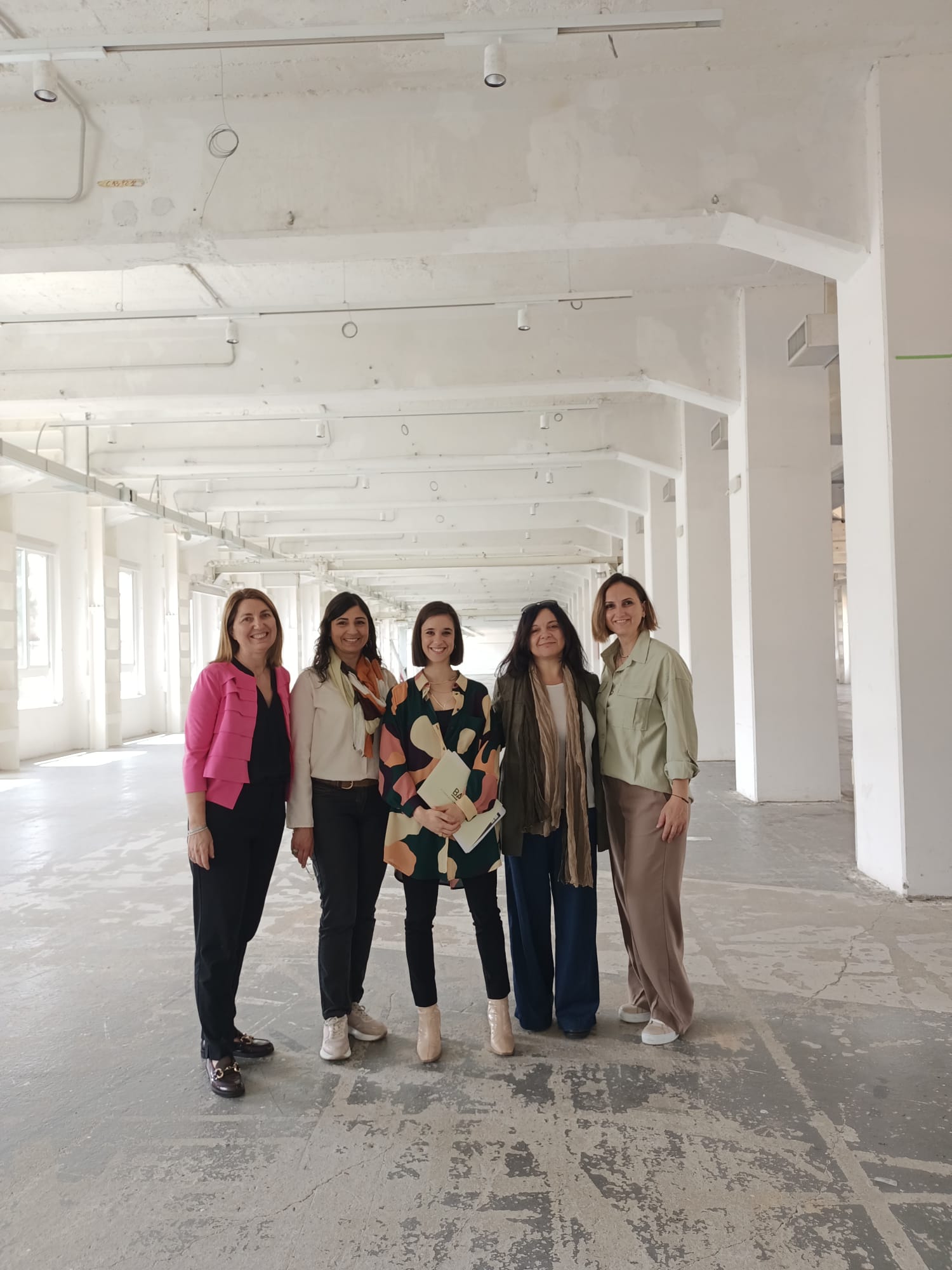
.jpeg)
BAĞCILAR MUNICIPALITY II. WORKING GROUP MEETING
On 31 May 2023, in the meeting attended by Prof. Dr. Necmettin Atsü, the rector of Kent University and Mr. Abdullah Özdemir, the Mayor of Bağcılar, we shared the conclusions of our study visit to Italy regarding Bağcılar. We discussed the innovation-oriented development of Bağcılar.



"How will Bağcılar be in 2050?" WORKSHOP
On December 6-7, we organized the "How will Bağcılar be in 2050?" workshop in cooperation with Bağcılar Municipality and Istanbul City University. On the first day of the workshop, we came together with business people, academics, non-governmental organizations and local administrations working in the manufacturing sector on the first day and in the service sector on the second day. We discussed sustainability, transformation, innovation, cooperation and policy issues with experts during the workshop, which we held in 3 sessions each day. We shared information on the creation of possible development scenarios of Bağcılar within the framework of sustainability principles and touched upon the problems, potentials and policies necessary for the manufacturing and service sectors operating in the district to achieve their future goals.
.jpeg)
.jpeg)
.jpeg)
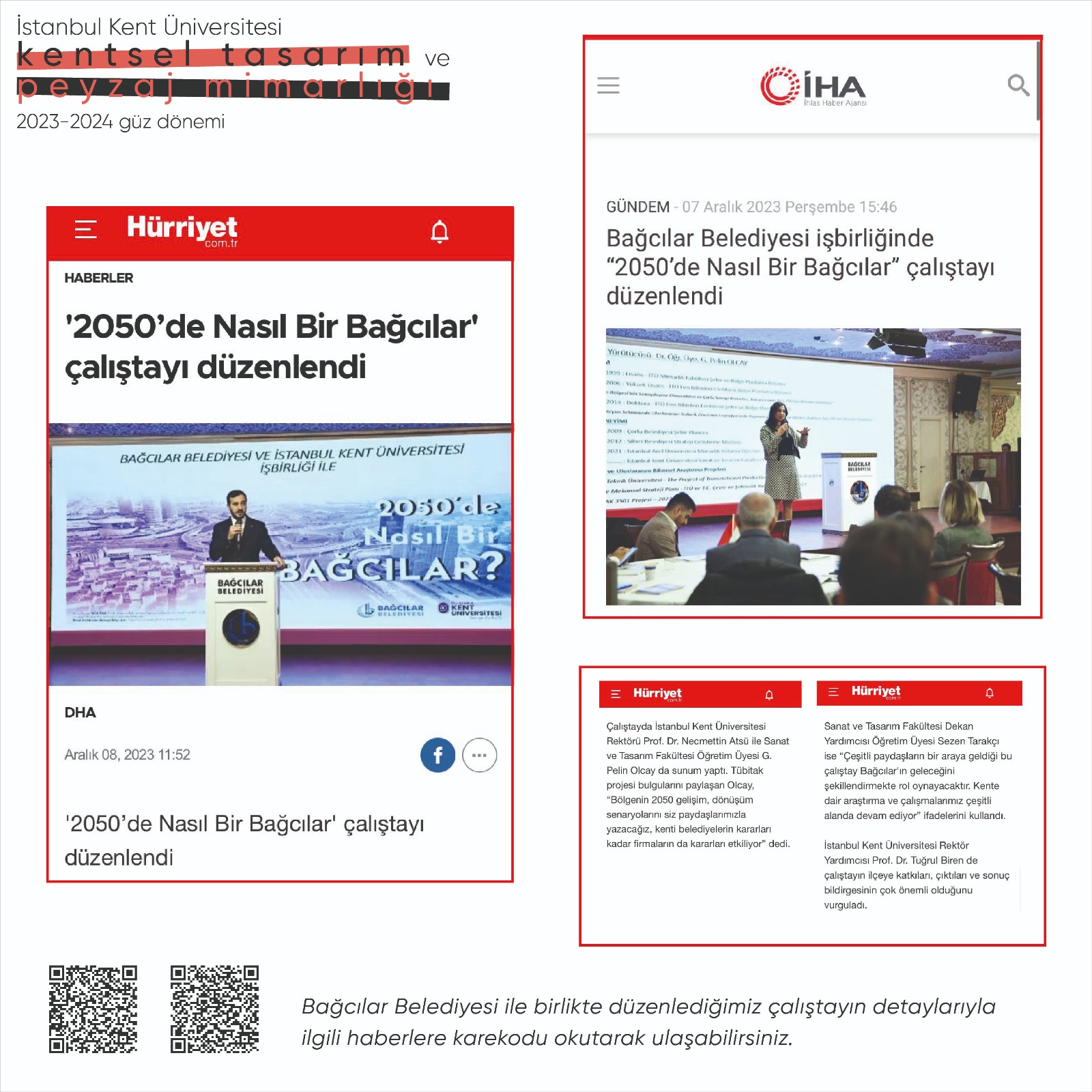
"ATÖLYEKENT" SEMINAR AND EXPEDITION
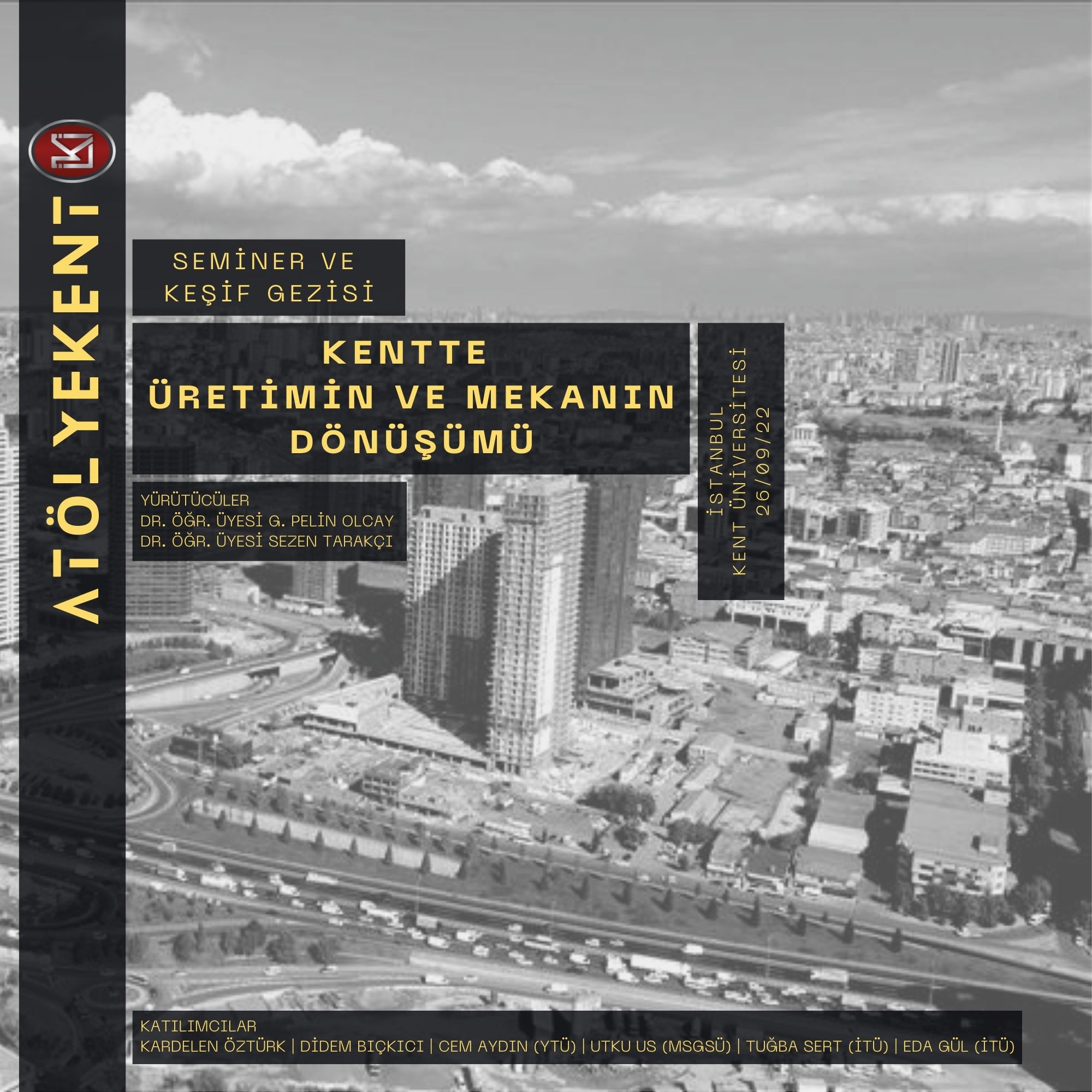
ITALY STUDY VISIT SCHEDULE
.jpg)
ITALY STUDY VISIT / WORKSHOP
.jpg)
"How will Bağcılar be in 2050?" WORKSHOP
.jpg)
46. COLLOQUIUM of DSG "JUSTICE IN SOCIETY AND SPACE" / SUMMARY OF THE PAPERS
Unconverted Spaces in Manufacturing Areas in the Transformation Process: The Example of Basın Ekspres Axis
Dr. Sezen Tarakci, Dr. G. Pelin Olcay
The introduction of the concept of urban transformation into urbanization and planning practice in Turkey took place in the 1970s, its use as an application tool in planning was in the 1980s, and the formation of its legal legislation took place in the 2000s. In urban transformation, which has become an important agenda in recent years, the decisions made regarding population and construction densities, function choices, and awareness of the socio-economic and cultural structure are extremely important in terms of sustainability.
To resist earthquake risk, the transformation of residential areas, both at the building and area scale, is on the agenda. The last legal regulation, Law No. 6306 on Transformation of Areas under Disaster Risk, while taking the subject of transformation on an areal scale with the concept of risky area, it also encourages urban transformation at the scale of a single building with the concept of risky building. Industrial areas with large plots, especially in the city center, are also the subject of urban transformation at the building scale. Different from the transformation of residential areas, there is also a function transformation. In recent years, it has been observed that this transformation in industrial areas, besides being structural and functional, has also affected the social transformation by targeting the upper-income group. In this direction, the study aims to examine the effect of Law No. 6306, which has been brought to the fore as a precaution against earthquake risk in recent years, on the transformation or non-transformation of cities, in the focus of industrial areas.
Since the Ottoman period, the manufacturing sector has been heavily involved in Istanbul. Researches and studies show that Istanbul is still an important city in the manufacturing sector, and unlike some developed metropolises, the industrial sector maintains its importance in Istanbul. However, on the other hand, decentralization policies are also implemented in the city and a transformation is experienced with the decentralization of the industry. At the beginning of the criticisms made about the transformation of industrial areas, there is an unattended structure without adequately examining the potential of the region. Bağcılar district is one of the regions that maintain its feature of being one of the important manufacturing areas on the one hand and undergoing transformation on the other hand. Therefore, the Bağcılar district was chosen as the sample area within the scope of the study. Environmental pollution brought by the industry in Bağcılar, faced with the problems of population and building density, with the 2000s, the industry began to be decentralized from a part of Bağcılar with plan decisions. This situation causes the transformation of especially large industrial areas in the district. It is observed that industrial areas with large plots have turned into residential buildings, business centers, offices, offices, shopping centers that need large plots, especially in the city. Especially with the exemptions and incentives provided by Law No. 6306 on Conversion of Areas Under Disaster Risk, which entered into force in 2012, it is seen that this transformation has accelerated in the district. It is observed that industrial areas with large plots have turned into residential buildings, business centers, offices, offices, shopping centers that need large plots, especially in the city. Especially with the exemptions and incentives provided by Law No. 6306 on Conversion of Areas Under Disaster Risk, which entered into force in 2012, it is seen that this transformation has accelerated in the district. It is observed that industrial areas with large plots have turned into residential buildings, business centers, offices, offices, shopping centers that need large plots, especially in the city. Especially with the exemptions and incentives provided by Law No. 6306 on Conversion of Areas Under Disaster Risk, which entered into force in 2012, it is seen that this transformation has accelerated in the district.
Since the scope of the study focuses on industrial areas, Mahmutbey, 15 July, and Bağlar Districts, where industrial structures are dominant in the district, were examined. The study area is approximately 681 ha and it was aimed to determine the current situation characteristics of the region with field studies. For this reason, within the scope of field studies, the function, construction year, and the number of floors of 6341 buildings were determined. According to these determinations, 81% of the buildings in the study area are located in housing and housing-trade functions. However, 0.8% (53 units) of the buildings on the site are residences, with 17 floors and above. The residences in question were built especially after 2013 and are located parallel to the axis of Basın Ekspres. In addition, 37% (2,359) of the buildings were identified as 4 floors. The main reason for this is The fact that the region has been planned as a 4-story adjoining arrangement in the plans as of the rehabilitation development plans. In short, it is seen that the transformation into Residences and luxury residences in the region is mostly experienced along the Basın Ekspres Axis, and accordingly, there are high-rise buildings on the Basın Ekspres Axis, while most of the buildings in the inner parts are 4 floors on average.
With the field studies carried out within the scope of the study and the zoning plan decisions examined, it is revealed that industrial buildings on the scale of a single building in the region have turned into residences, and skyscrapers have risen rapidly in the region, especially along the Basın Ekspress axis. However, this transformation is not within the scope of a holistic approach with the city, and intensively working manufacturing areas, on the one hand, slum areas on the one hand, and luxury residences on the other hand are intertwined. As a result of this transformation in industrial areas, those living in slum areas lose their job opportunities and the city loses its production spaces, and those living in residences cannot integrate with the city. The lack of urban equipment areas that can meet the needs of urban residents with different socio-economic characteristics living in the region constitutes the main problem of the region. The situation reached in the last 10 years in the case of Bağcılar district shows us that it is of great importance for the future of cities to decide and project urban transformation areas within the scope of a vision for the future, especially by integrating this with the policies developed for the whole city.
E-mail: tubitak221k261@kent.edu.tr
Phone: +90 (212) 610 10 10 - 539 / G. Pelin Olcay
+90 (212) 610 10 10 - 541 / Sezen Tarakçı